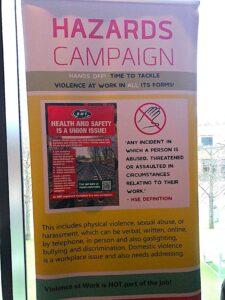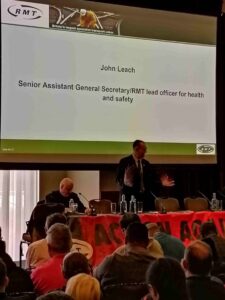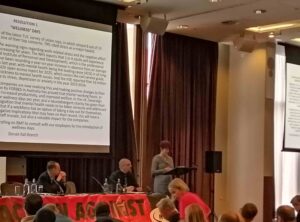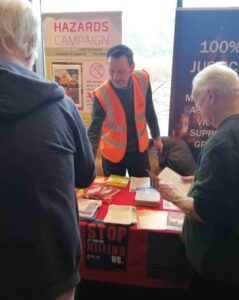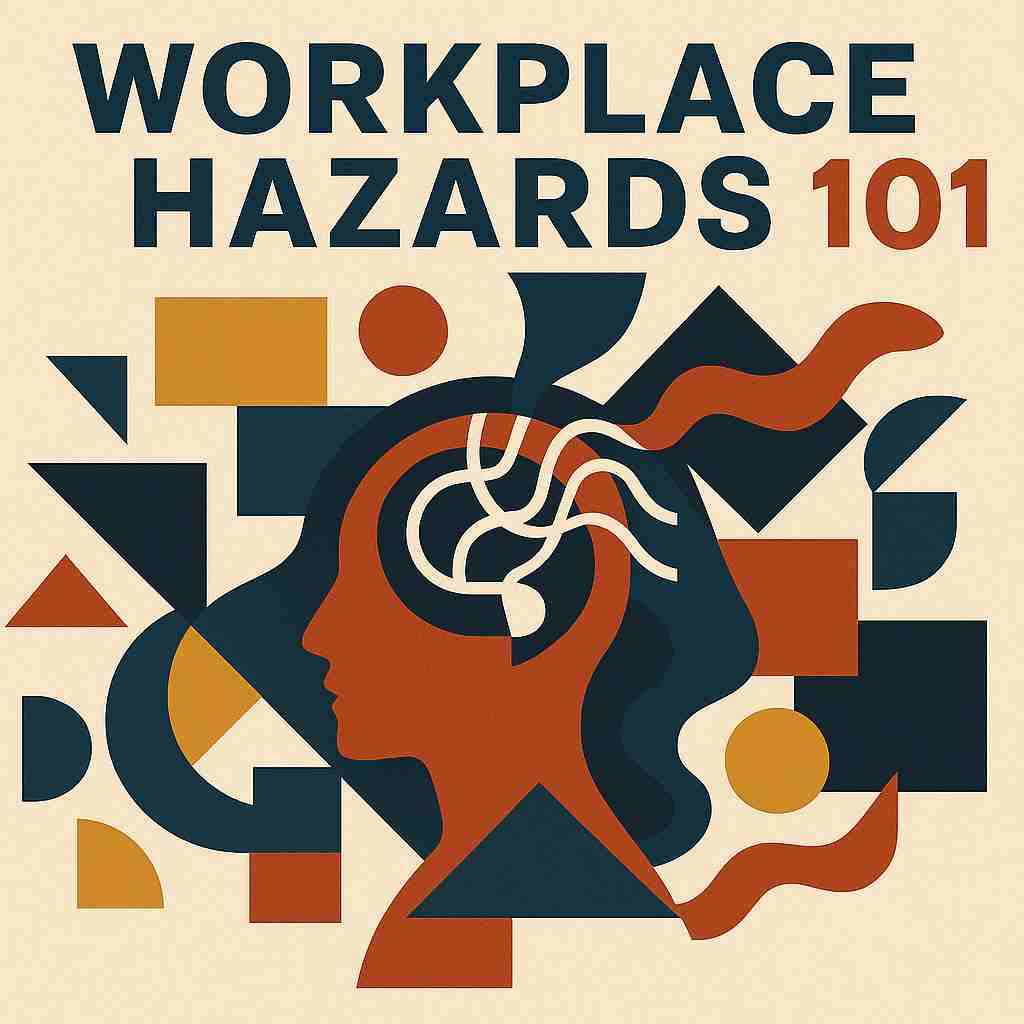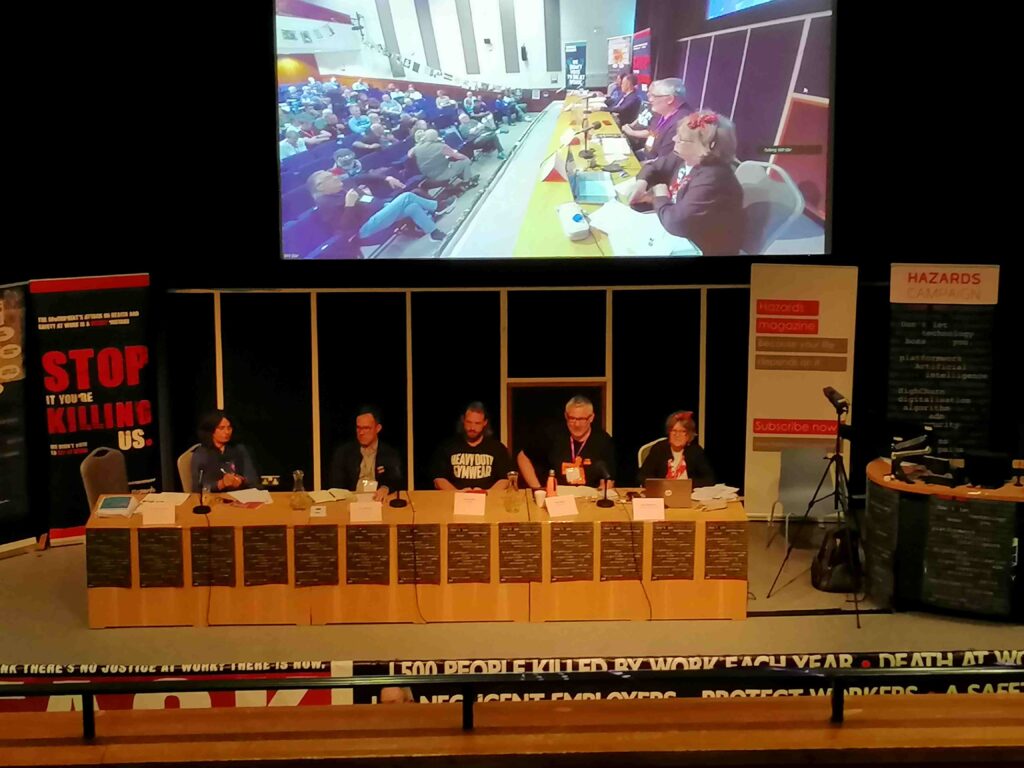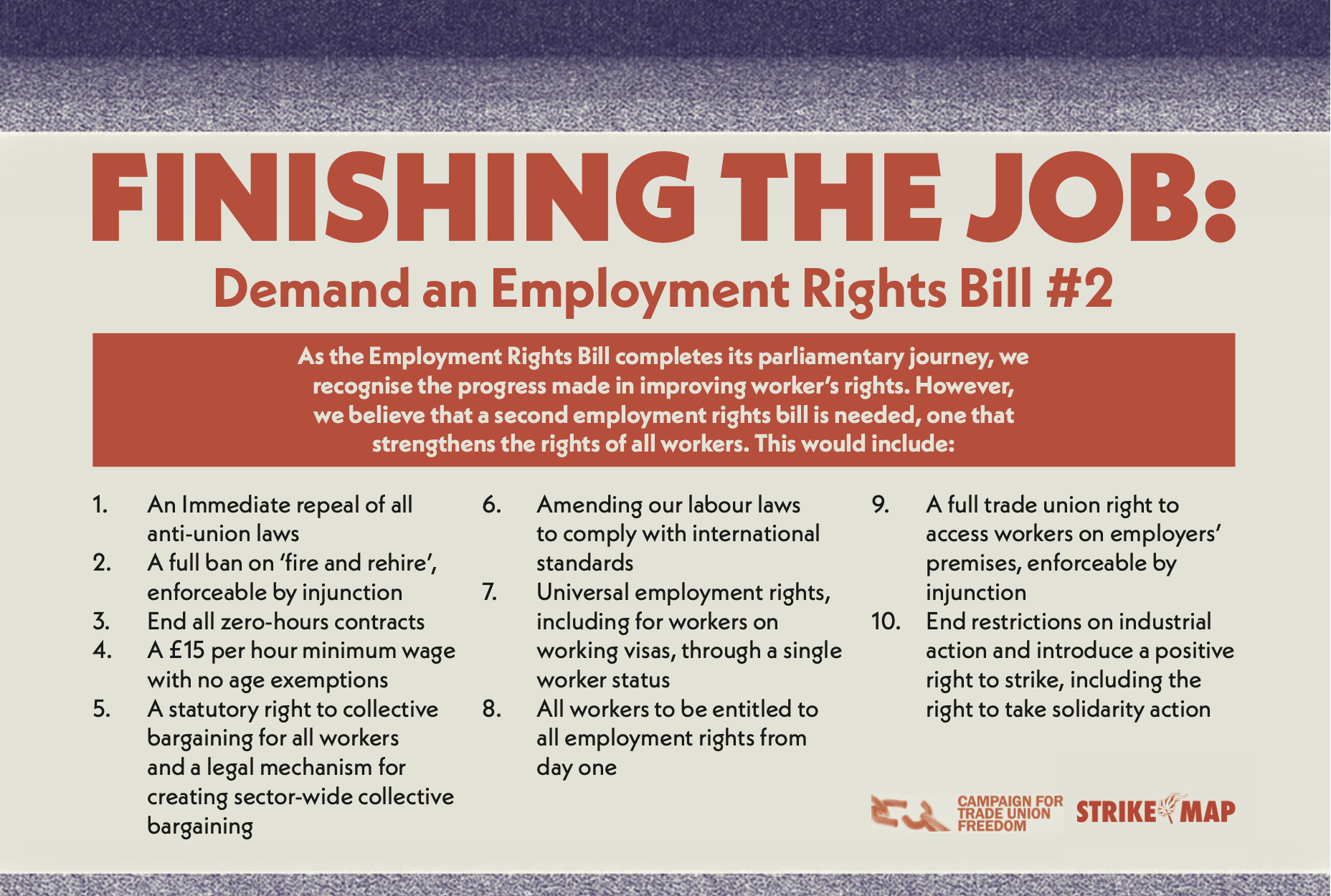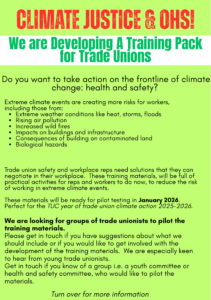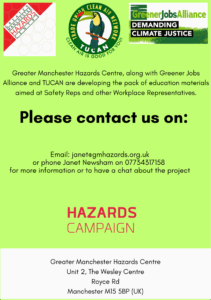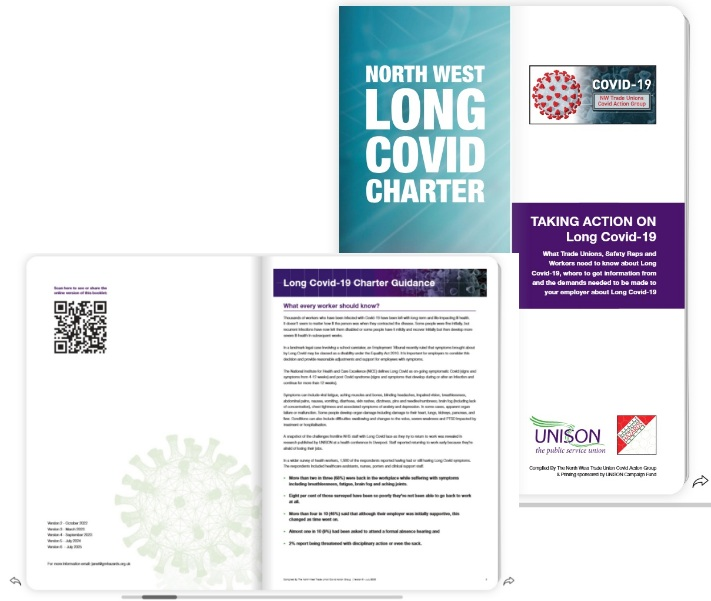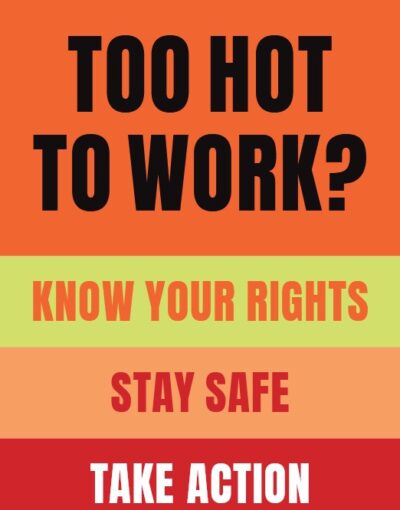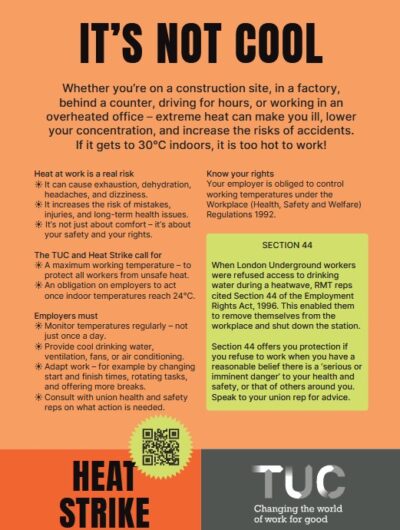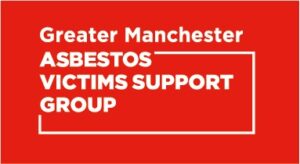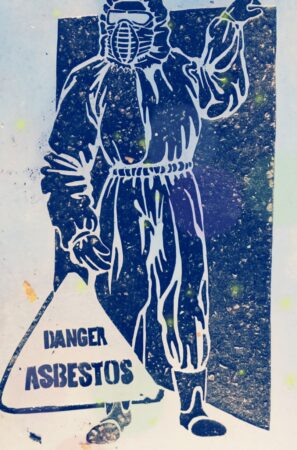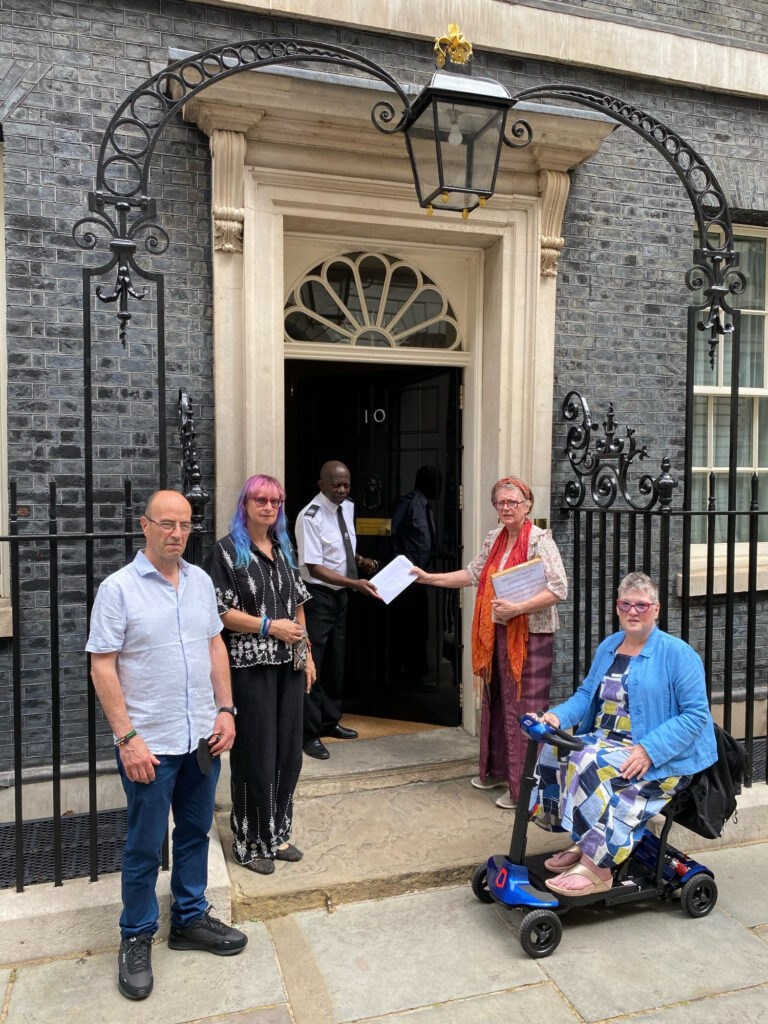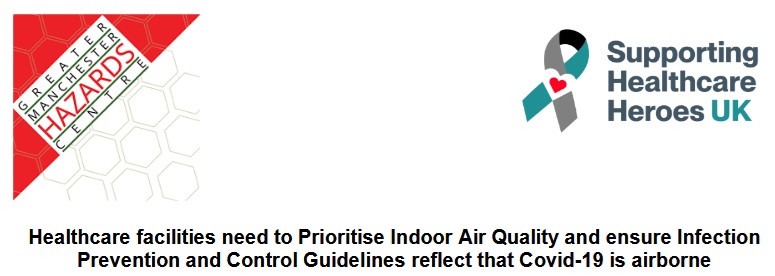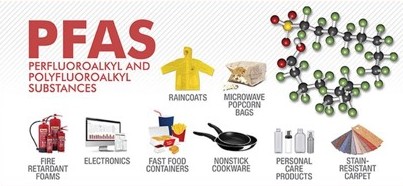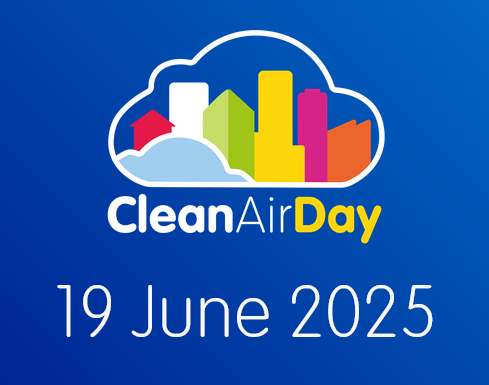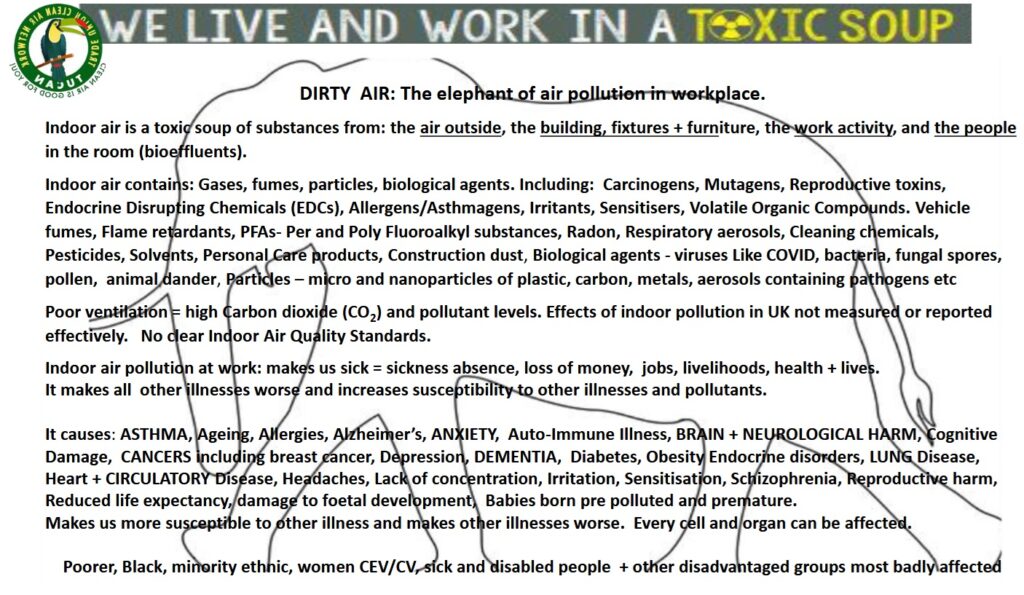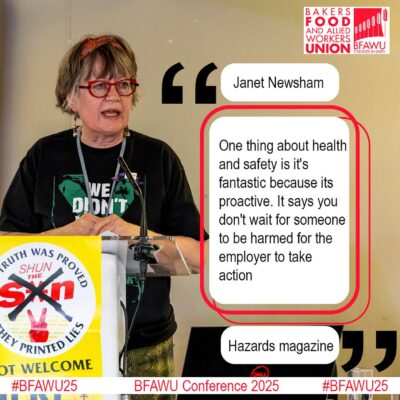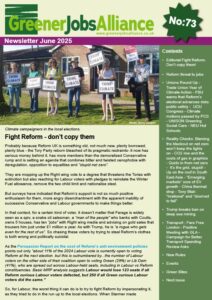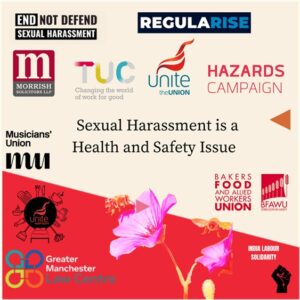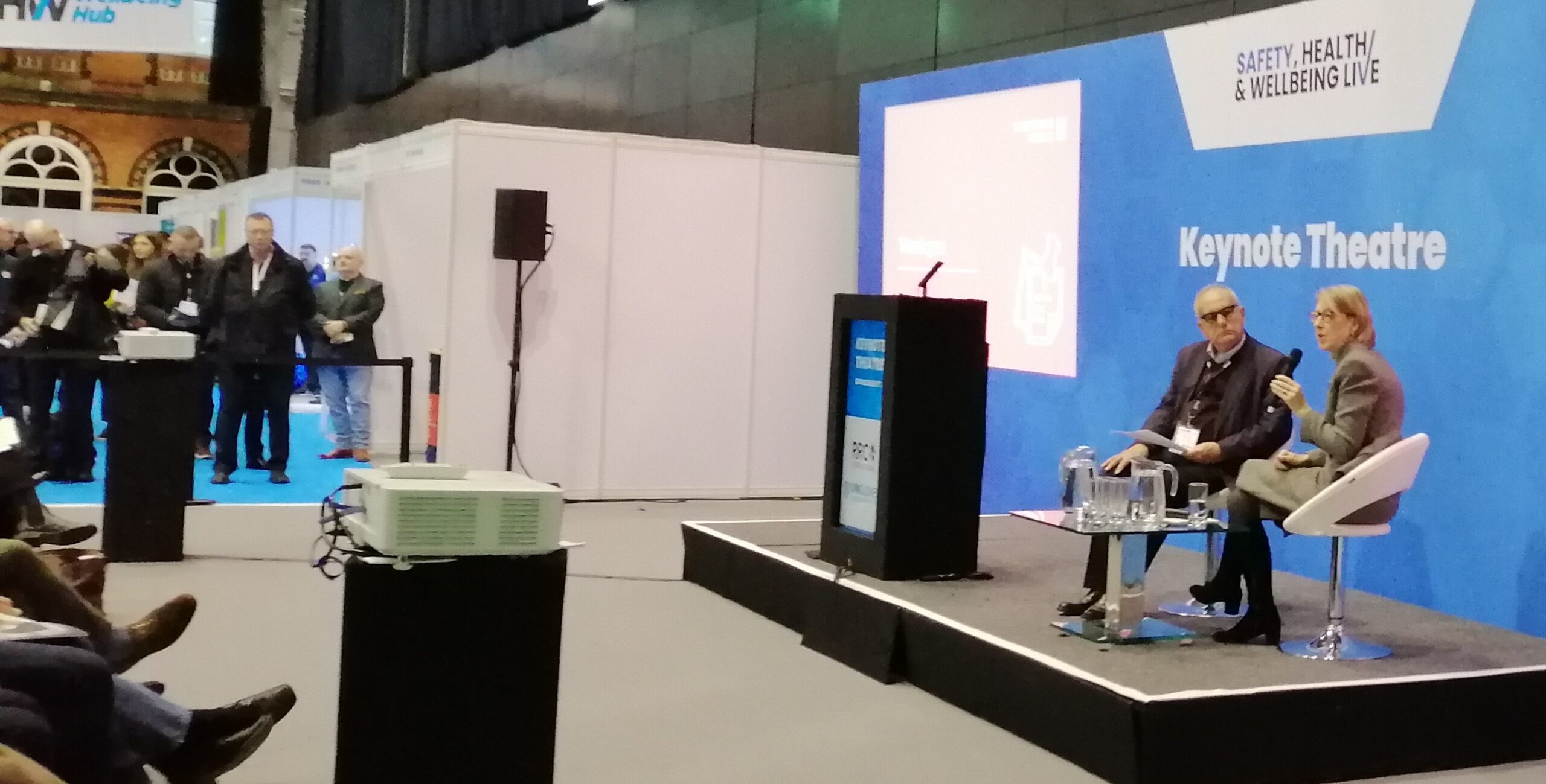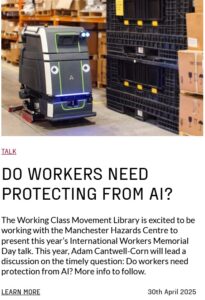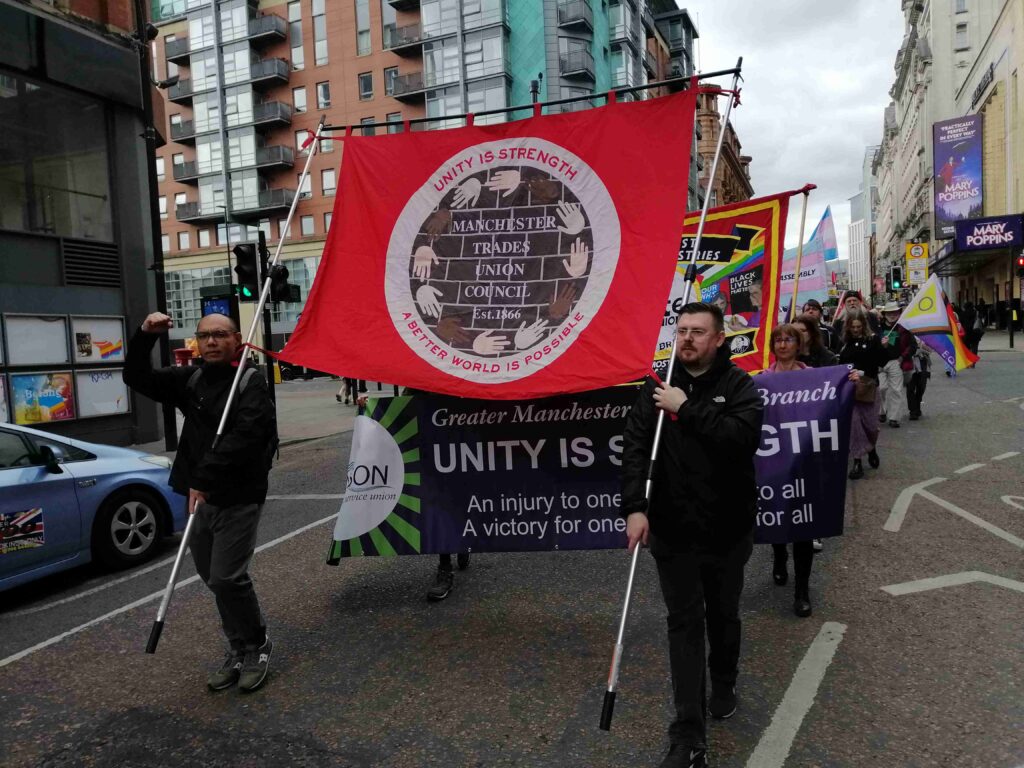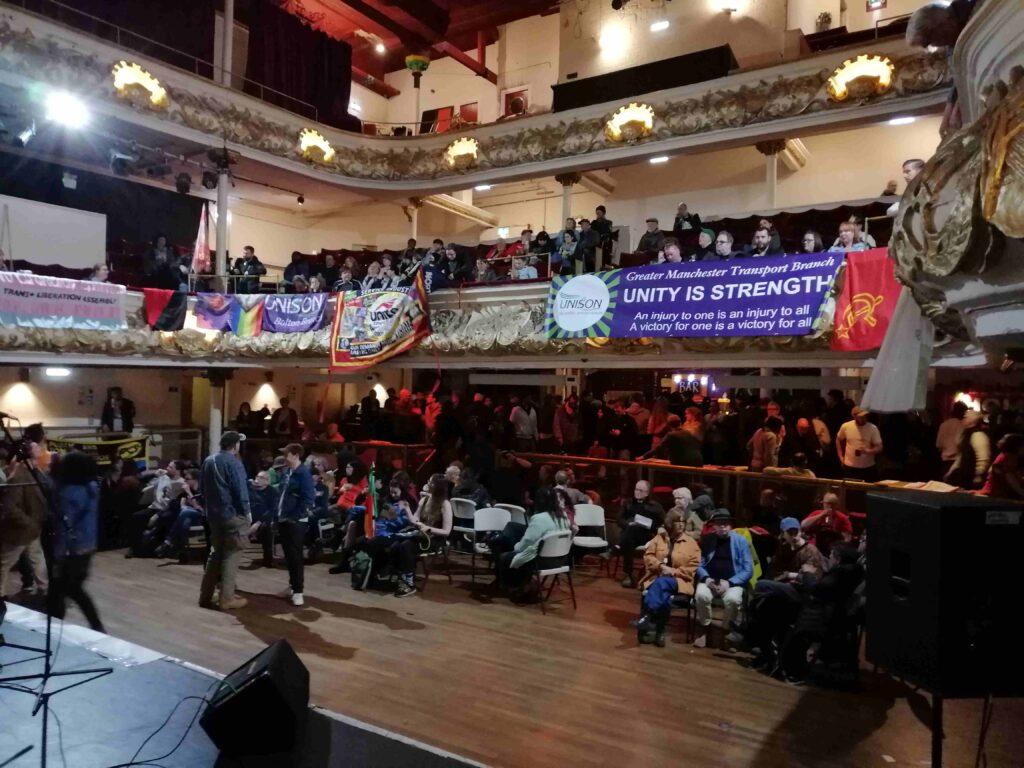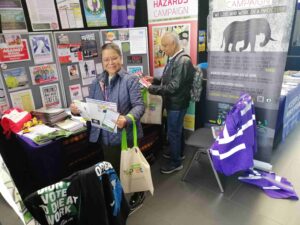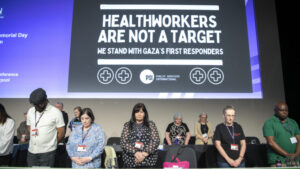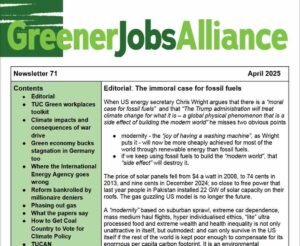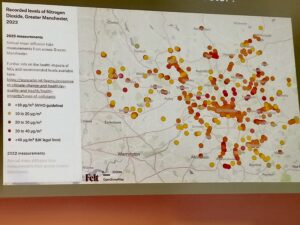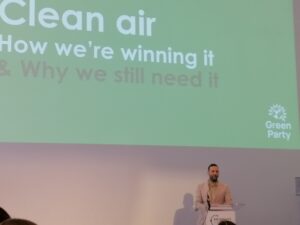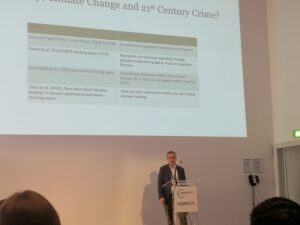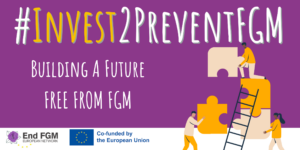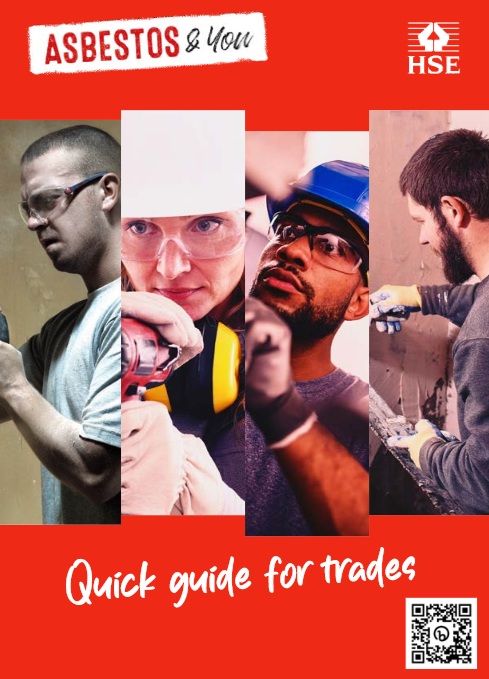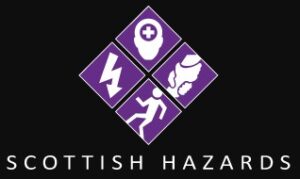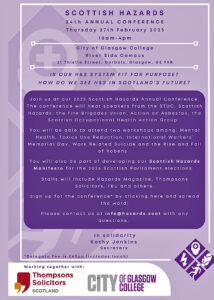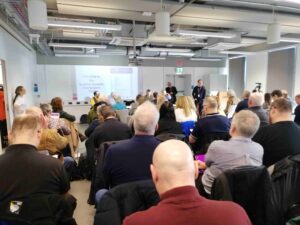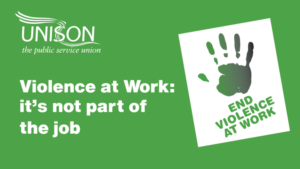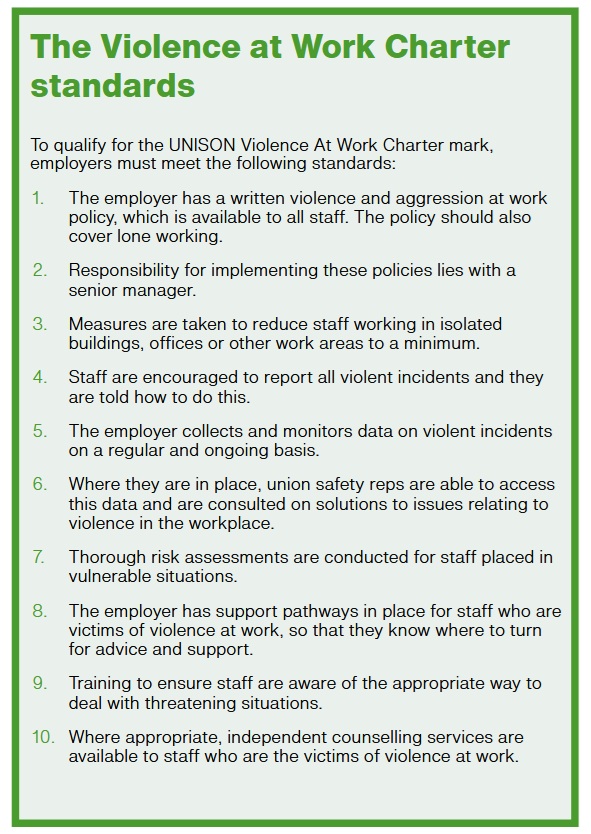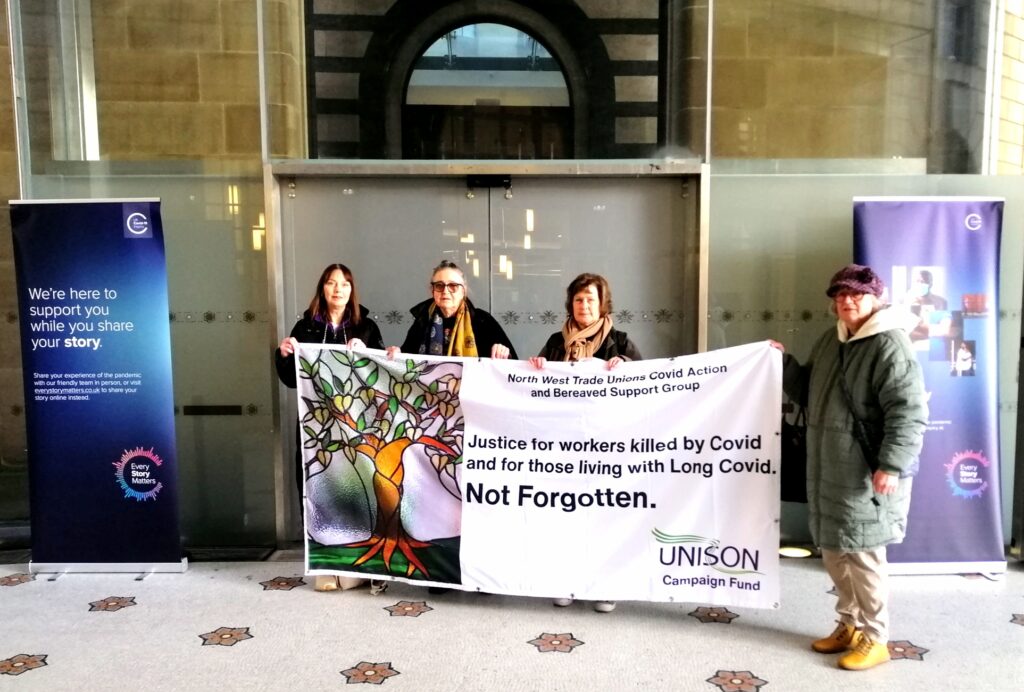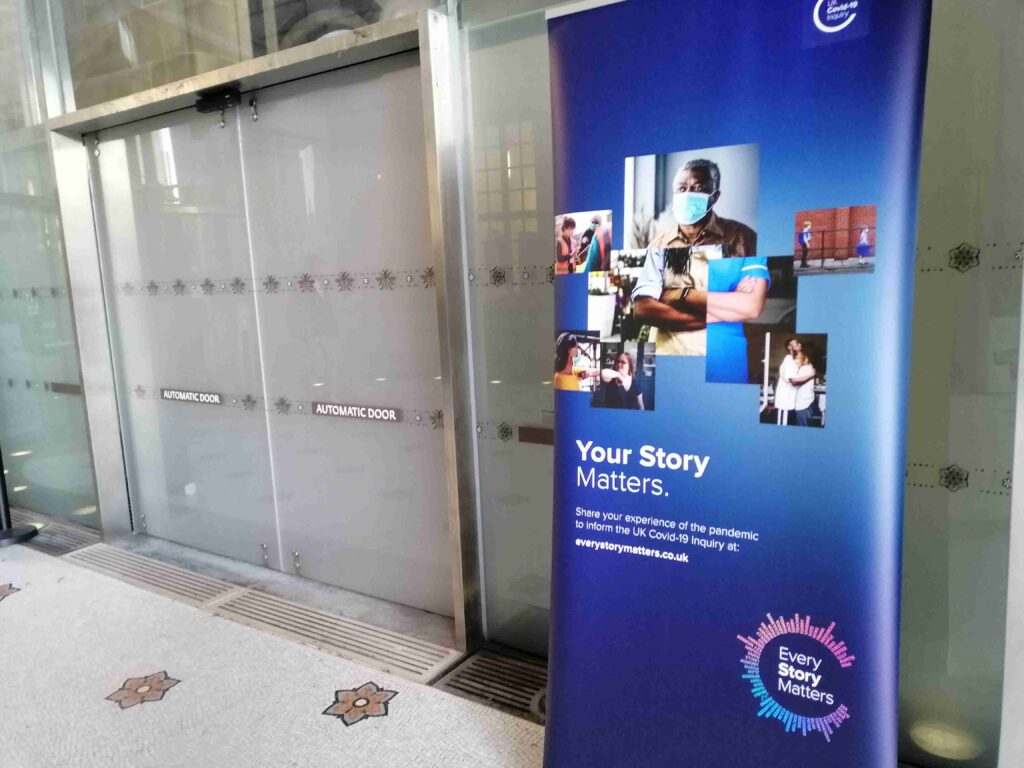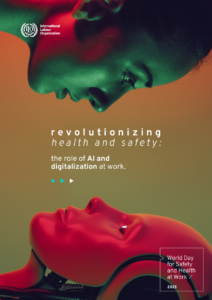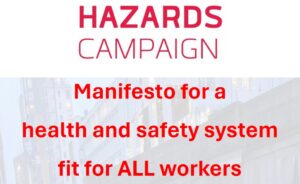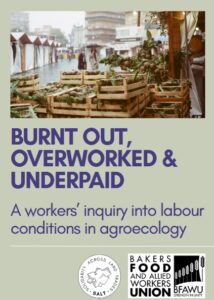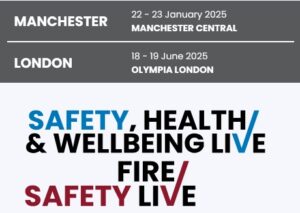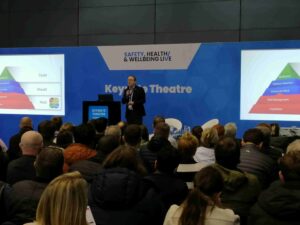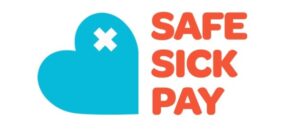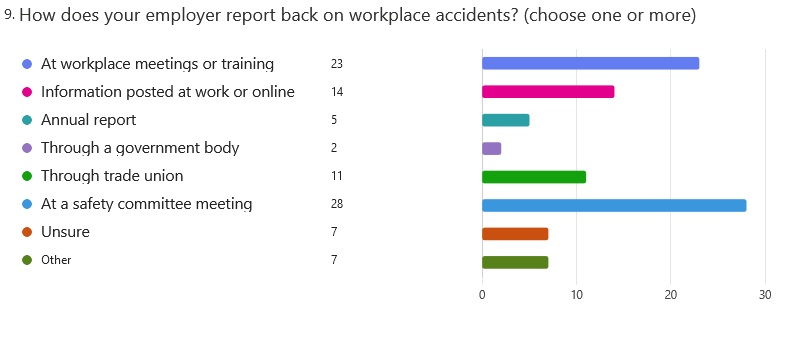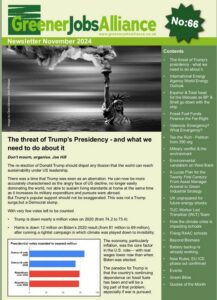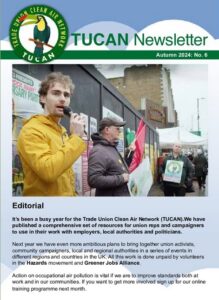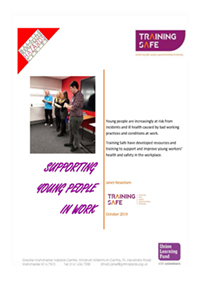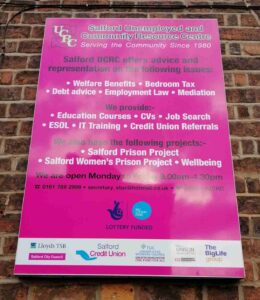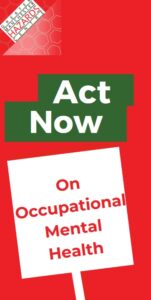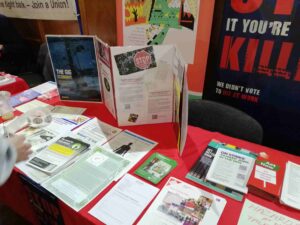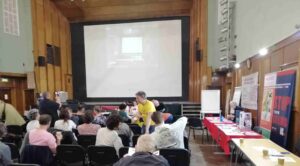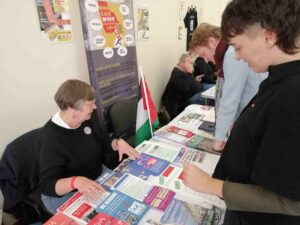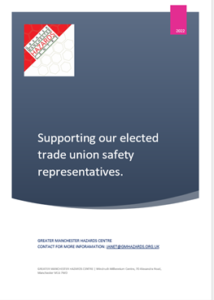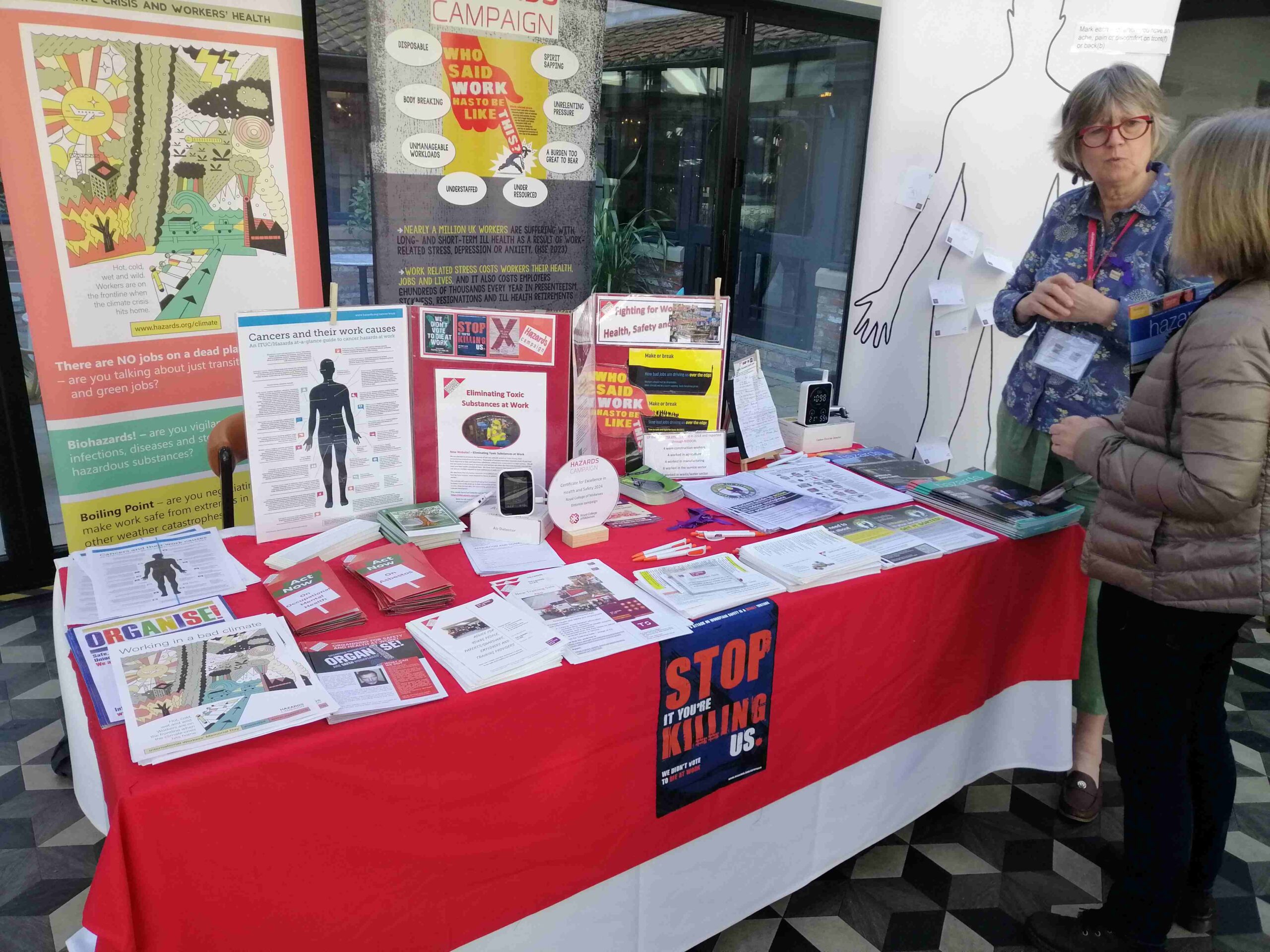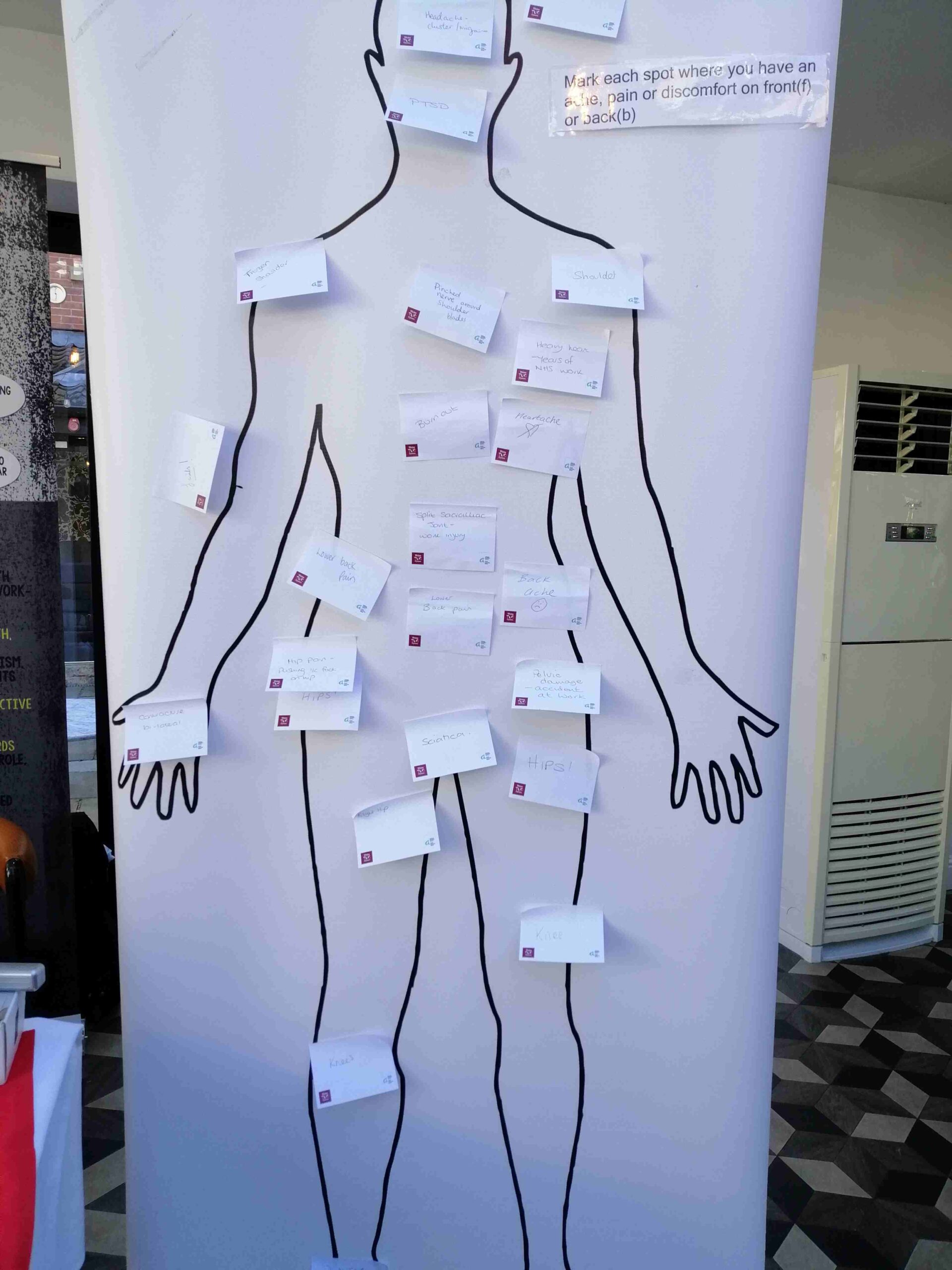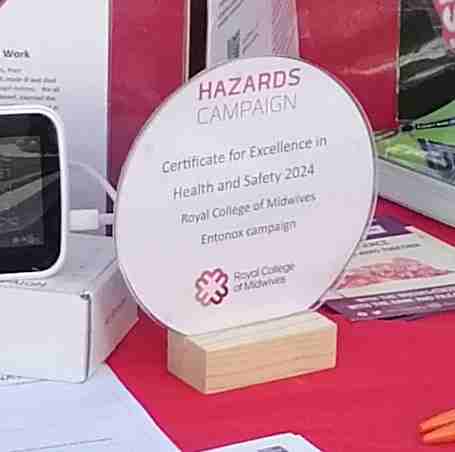One easy fix could save thousands of working women
19th Feb. 2026: Some employers must have missed the memo and not realised that more than half the population are women and therefore a huge proportion are working women.
Despite heightened awareness during Covid-19, indoor /outdoor pollution and the rise in hazardous chemicals, risky jobs and particulate matter, most PPE is still designed for men.
The GMB union in the UK recently surveyed women across a range of industries and found that over 70% were regularly issued with ill-fitting PPE. Discomfort, embarrassment, unable to carry out work and crucially, a risk to their personal safety were the most common responses. From engineering, prisons/policing, factory work, cleaning, transport, health and construction – a ‘one size fits all’ approach puts thousands of women at risk. With a diverse workforce of all shapes and sizes and more women working in a wide range of industries, more and more unions and the TUC are calling inclusive PPE as outlined by the British Standards Institute (link below).
Taking Action
For easy TUC guides on what employers and safety reps can do click here
A national guide on inclusive PPE from the British Standards Institute (BSI) click here
Also see Putting the Personal into PPE here.

Back in Jan 2025 Hazards raised this point at the Safety, Health & Well-being Live event in Manchester.
“GMHC took the opportunity to talk to some exhibitors such as, safety wholesalers, Slingby, the British Standards Institute (BSI) and others about PPE. Trade union women and safety reps have previously mentioned to GMHC that finding PPE suitable for their physique and working environment remains a concern. The ‘standard-fit’ PPE in most industries could be potentially putting many women at risk. The exhibitors were highly responsive to this issue and conceded that this was something that hadn’t been on their radar”.
RMT National Health & Safety Advisory Conference
13th Feb. 2026: The Hazards Centre attended the RMT National Health & Safety Advisory Conference and Training in Liverpool on the second day, 12th February 2026. It was immediately clear from the discussions with reps and from the agenda that customer aggression and worker mental health were two of the hot topics.
The keynote debate focused on “making travel safer” and will look at how moving beyond simple ‘human error’ explanations can help better understand safety incidents and enable the design of more effective interventions. The discussion was chaired by Shelly Asquith TUC health, safety & wellbeing policy lead, and speakers, Paul Leach RSSB Head of Human Factors, Professor Robert West from University College London and Shaun Helman, Head of Transport Psychology, Transport Research Laboratory.
Additional speakers at conference included Richard Hines, ORR Chief Inspector, Thompsons solicitors giving an update on health and safety law – and local MP Kim Johnson spoke at the event. The conference was also an opportunity to hear from RMT senior leaders.
Both the conference and the conference training workshop also focused on the RMT ‘Action Against Assaults’ campaign. The training workshops included, fatigue management, introduction to human factors, introduction to RAIB (rail accident investigation branch), stopping violence at work, the role of the safety reps on workplace stress and working in extreme heat.
A representative from the RMT Dorset branch presented Resolution 1 which called for the RMT to back calls for ‘wellness’ days to help mitigate the rise in sickness due to stress.
RMT Resolution 1
On the second day the RMT Wessex branch highlighted the results of the latest TUC Survey of Union Reps in which almost 8 out of 10 reported work-related stress as one of their top concerns, 79% cited stress as a major hazard.
However this is not an isolated result the warning signs regarding work-related stress and the negative effect this has on mental health have been increasing for years. The NHS reports that one in four adults will experience mental illness. The Chartered Institute of Personnel and Development (CIPD), the professional body for HR and people development have been recording a year on year increase in absences. This has gone from an average of 7.8 days per person in 2023 to 9.4 in 2024. Mental health was cited as being the leading cause in all long term absences -41% and 29% in short term absences.
The UK Government Open Access Report from 2025 which covers the civil service grade attributed 47.1% of their long-term staff sickness to mental health issues and the Health and Safety Executive (HSE) reported 16 million working days lost due to stress, depression or anxiety in the year 2023-24.
Something has to change! A number of companies are now realising this and making positive changes to their working environments. An investigation by Forbes media in Australia has proved that shorter working hours or cutting the working week has actually increased productivity and improved welfare. In the Sovereign Network Group has given their staff three wellness days per year and a neuro-divergent charity has given their staff two days a year. There is a growing recognition that mental health needs to be taken seriously and addressed with a positive mitigation. We believe that if a workforce has an option of taking a day out for themselves instead of going sick, and all the negative implications that may have on their record, this will have a beneficial effect. It will improve not only staff morale but also have a valuable impact for the employers and benefit of all members.
We are calling on the RMT to consult with our employers for the introduction of wellness days.
Dorset Rail branch 2026
Links
www.rmt.org.uk/campaigns/political/action-against-assaults
www.tuc.org.uk/news/tuc-record-levels-work-related-stress-britains-workplaces
www.hse.gov.uk/statistics/dayslost.htm
National Apprenticeship Week, 9 – 15 Feb. 2026
Apprenticeships should allow the training of a highly skilled future workforce, which will be central to the worker’s climate transition and the building of the green industries we desperately need. The shift to a net-zero and low carbon economy will depend immensely on a workforce equipped with the technical and practical expertise to make it happen. And many young people would jump at the chance to take on a secure, well-funded, apprenticeship in developing green industries.
National Apprenticeship Week
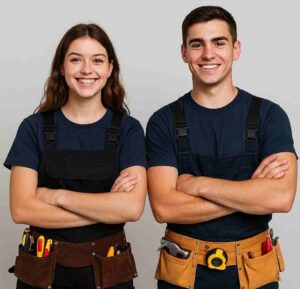

Worker Stress: Debilitating, dangerous and costly
3rd Feb 2026: The TUC declares work-related stress “crisis” as HSE stats show 22 million working days were lost due to stress in 2024/2025. Britain is facing a work-related stress crisis, according to new TUC data released in January 2026.
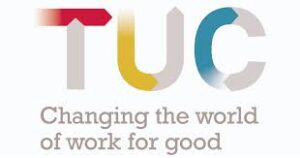 Almost eight in in ten (79 per cent) of union reps taking part in the TUC’s 15th biennial survey reported stress as one of the main concerns they face at work – and that employers are routinely failing to assess or act on the risks.
Almost eight in in ten (79 per cent) of union reps taking part in the TUC’s 15th biennial survey reported stress as one of the main concerns they face at work – and that employers are routinely failing to assess or act on the risks.
To read what the survey of more than 2,700 union safety reps found click here.
A global epidemic linked to inequality
Stress and the psych0social harms in the workplace is also a global epidemic particularly where workers have no or little say at work. For more on the global perspective click here
In a United Nations report from July 2024, reporter Olivier De Schutter, identifies the mechanisms that expose people in poverty to a heightened risk of mental health conditions, and he examines how, despite the extraordinary resilience of many people in poverty, mental health issues can perpetuate poverty. He calls upon States to move from a biomedical approach to mental health, which treats it as a problem of the individual, to an approach that addresses its social determinants. In order to combat the global tide of depression and anxiety, more should be done to fight poverty and inequality, and to address economic insecurity.
In addition to increasing investments in mental health care, the Special Rapporteur identifies addressing the psychosocial risks caused by the casualisation of labour, strengthening social protection by providing an unconditional basic income, de-stigmatising mental health conditions and facilitating access to green spaces in order to reconnect with nature, as priority interventions. The vicious cycles connecting poverty to mental health problems are the price we pay for the current focus on stimulating competition and performance. In a society obsessed with increasing total economic output, these cycles can be broken, provided we put well – being above the endless quest for economic growth. UN Summary 2024
Old fossils for war or peace?
1st Feb 2026: New edition of the Greener Jobs Alliance newsletter out now.
Edition number 81 includes, commentary on unprofitable US adventurism from old fossils in Venezuela, the National Education Unions (NEU) Sarah Lyons at the Climate Committee, Trade Union Clean Air Network (TUCAN) with Hazards prepares to launch new safety reps course on climate risk assessments, Chinese windmills are in fact real and numerous, data centres and A.I. update, 85 seconds on Doomsday Clock and the arresting facts from Green Bites plus much more. Click here or on the cover image.
On and around 28th April 2026 unions around the world will mark International Workers Memorial Day (IWMD) for those who have been killed, injured or made ill by work. In 2026 there will also be a focus on the pyschsocial impact that workers regularly face in the workplace. Worker mental health can be greatly affected by workloads, bullying & harassment, having no say at work, lone-working, job insecurity, violence, low wages and more. All are preventable which is why IWMD will highlight this problem globally.
See how Manchester observed IWMD in 2025 here
Details of IWMD in Manchester and around the country will be posted in our events calendar soon.
TB at Amazon Coventry: Decisive risk prevention is always better than managing the risks during or afterwards
20th Jan. 2026: With the widely reported outbreak of tuberculosis at the Amazon warehouse in Coventry UK, Hazards has a few pointers for employers.
- If there’s a potential risk from a pathogen or bacterial infection it is safer to send workers home on full pay until you can identify and control the risk
- Good clean filtered air along with temperatures suited to the tasks helps reduce sickness
- Employers can get the best out of their employees if they have recognised union safety representatives on site
- Providing safe working conditions and consultation options for diverse groups of workers is one of the basics of good health and safety. Employers can save time, costs and effort by listening to those who know the shop floor – the workers
- Productivity goes up if workers feel valued and listened to allowing employers to respond to issues quicker
The GMB union has been on the forefront calling for appropriate infection control measures to be put in place at Amazon. Although TB is relatively uncommon in the UK the number of infections are rising and if left untreated can play havoc with vital organs

It is key to identify any infections and control bacterial risks like TB by ensuring workers are not in harms way.
No matter what the risk, workers have more chance of coming home safely if they have proper representation and a voice in the workplace.
UK safety regulator responds in full to fewer than a quarter of FOI requests
23 Oct. 2025: An effective regulator on workplace safety not only saves lives and improves health but is essential for productivity and a strong economy. In what has now become a ritual, getting adequate information from the Health and Safety Executive (HSE) remains a challenge as Hazards Magazine reported in 2023.
More recently Sam Baker, Staff reporter from The Chemical Engineer exposes the ongoing battle for HSE transparency and accountability. Sam notes that, ‘according to Cabinet Office data, HSE responded in full to 24% of 470 Freedom of Information (FOI) requests, down from 49% in the second quarter of 2022.‘
Janet Newsham, chair of the Hazards Campaign, told TCE she was “shocked to see that the HSE is failing to respond adequately to FOI requests.
“Workers need a fully functional and transparent regulatory authority, that will ensure their health, safety and welfare in an ever increasingly hostile working environment is protected. The HSE is a public body and must be open to public scrutiny.”
An HSE spokesperson responded: “We comply with FOI legislation, applying exemptions only where relevant and appropriate.”
Read the full article by Sam Baker here.
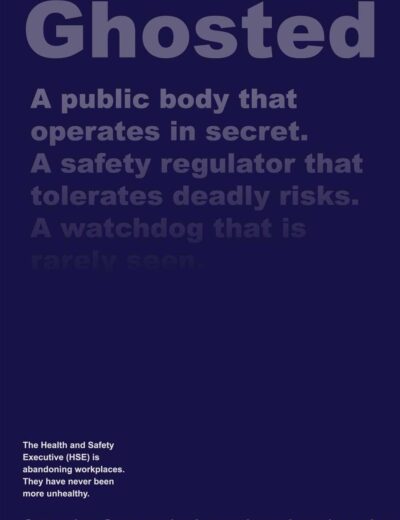
Toxic Tube: TSSA Puts London Underground’s Dirty Air in the Spotlight
22 Oct. 2025: The Transport Salaried Staffs’ Association (TSSA) campaign for cleaner air on the London Underground gathers momentum this autumn with the backing from the Hazards campaign amongst others. Service staff, drivers, contractors and passengers endure the dirtiest metro system in the world and workers in particular face potentially long-term health conditions as a result. Blow your nose after a trip on the Northern, Central or Victoria line and see your tissue turn black – imagine that every day for hours on end.
The TSSA reports that, ‘…it is widely established that excessive exposure
to dust – especially smaller respirable particulate matter which can get into the blood stream (PM2.5) – is dangerous.’
‘London Underground is a workplace, but it is also a public space. While there are clean air standards for the outdoors, there are no similar overarching indoor air quality regulations for public spaces outside of the HSE standards or building construction regulations‘.
Although Transport for London (TfL) who operate the network, have recognised the need to improve air quality, the 3% allocated from the cleaning budget needs to be scaled up along with stronger legal protections.
TSSA is calling for the following from London Underground and legislators –
• Clean the tube – increase the cleaning budget from £2 million to invest in modern cleaning equipment, air filtration, and ventilation, and ensure air quality monitoring is done regularly, at appropriate times of day, with investment into research and development of cheaper, reliable monitoring technology.
• The HSE standards are not fit for purpose – the IOM describes these levels as ‘unsafe’. TSSA are calling on the Health and Safety Executive to harmonise their clean air regulations with the more robust Institute of Occupational Medicine standards.
• London Underground is a Public Space – as a workplace, London Underground is governed by HSE air quality regulations, but it’s also a public space. Outside of the HSE regulations, and building regulations, there are no overarching regulations for indoor air quality in public buildings. It’s time for general indoor air quality standards.
Photos TSSA, quoted extracts from the TSSA Campaign Briefing Oct 2025
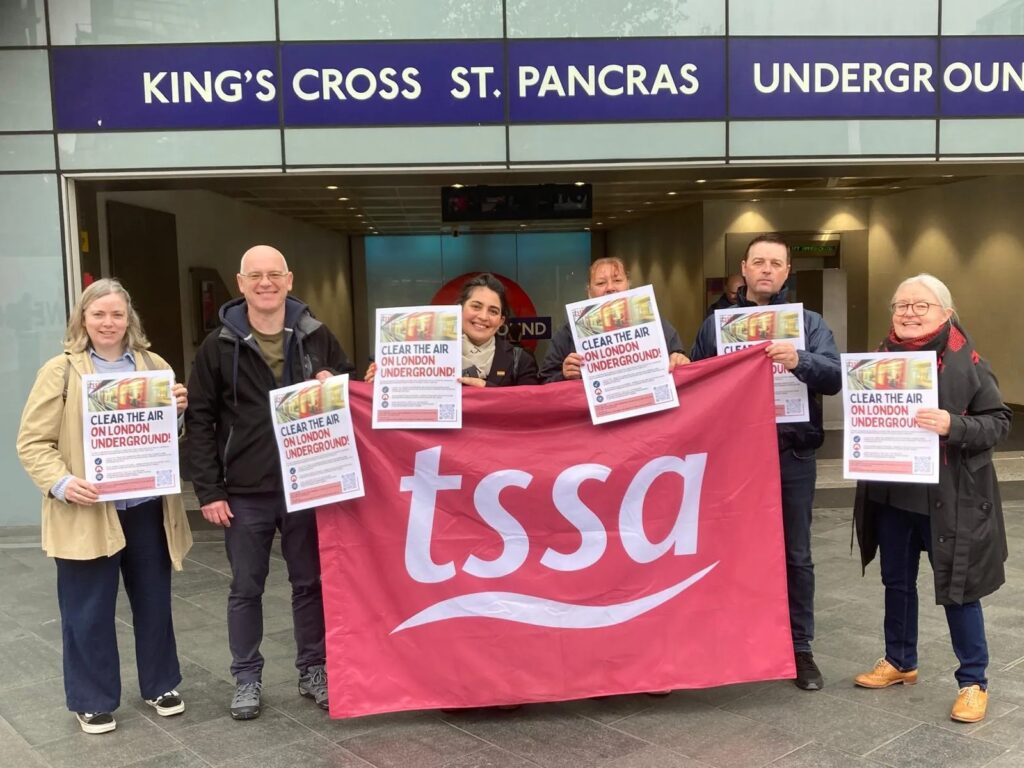
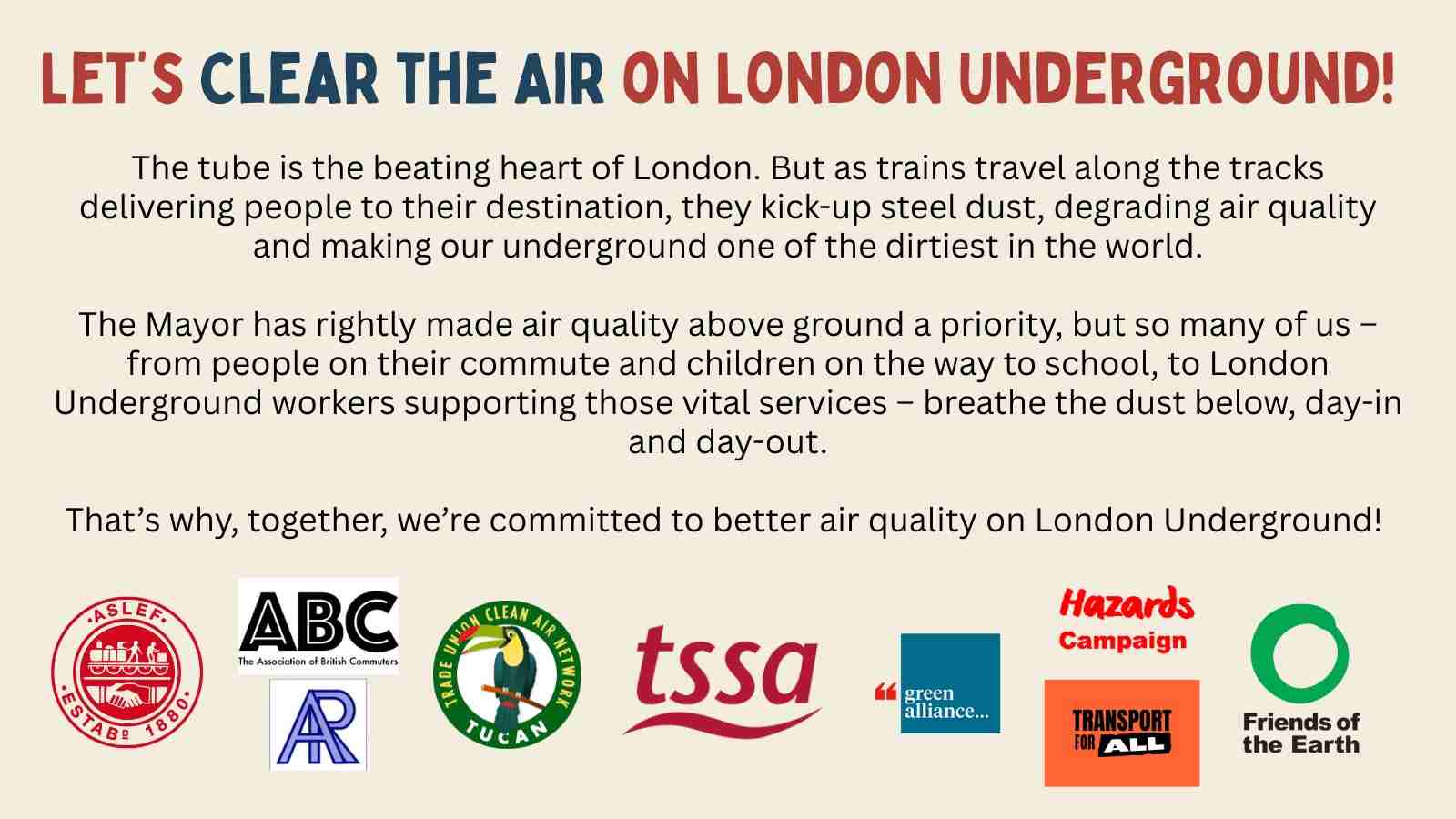
The campaign is backed by the TSSA, the Hazards Campaign, Friends of the Earth, Transport for All, Green Alliance, ASLEF, AR, The Association of British Commuters, and the Trade Union Clean Air Network.
Hazards Conference 2025 – an overview
22 Oct. 2025: After each Hazards conference we compile a report for those who attended which gives an overview of the talks, workshops and links to the associated resources. It’s a great way of keeping everything in one place and is free to access and share. View the Conference Report Here
The next Hazards Conference will be at Keele University from the 4-6 September 2026. More details will follow in spring 2026.
23 Sept. 2025: Roving reporter and union activists Neil Gardiner from GMB Northants gave us overview of the 36th Hazards Conference 2025 at Keele University.
Neil writes that, ‘the conference is the UK’s leading grassroots event for trade union health and safety reps. Whether you’re new to trade unionism or a seasoned activist, this video captures the vital discussions, workshops, and networking opportunities that empower safety reps to tackle workplace issues like AI, deregulation, climate change, asbestos exposure, and violence at work. Learn how trade unions are supporting young members, organising across sectors, and pushing back against threats to workers’ rights’. Thanks to Neil for a great overview and we hope to see you again next year.
See Neil’s overview and other 2025 conference media here
See GMB Northants informative YouTube channel here
Help develop climate change resources for safety reps
28th Aug. 2025: A great opportunity has arisen for union safety reps and other reps to get involved educating workers on the risks posed by climate change. The Hazards team along with the Greener Jobs Alliance and the Trade Union Clean Air Network (TUCAN) are developing materials for reps and would like your help. We’d like to pilot the materials and get feedback from reps on these resources. For more information see the leaflet here or opposite and share with colleagues at work or on social media.
Taking Action on Long COVID-19
26th Aug. 2025: Now available in Flip-book format here and hard copy the North West Long COVID Charter is an essential tool for unions, workers and their reps to understand the issues, the law and the strategies needed. The charter will help you find information and the demands needed to be made to your employer about managing and understanding Long Covid-19 in the workplace.
Thousands of workers who have been infected with Covid-19 have been left with long-term and life-impacting ill health. It doesn’t seem to matter how ill the person was when they contracted the disease. Some people were fine initially, but recurrent infections have now left them disabled or some people have it mildly and recover initially but then develop more sever ill-health in subsequent weeks.
In a landmark legal case involving a school caretaker, an Employment Tribunal recently ruled that symptoms brought about by Long Covid may be classed as a disability under the Equality Act 2010. It is important for employers to consider this decision and provide reasonable adjustments and support for employees with symptoms. Read the full information by accessing the new booklet here.
Compiled by the North West Trade Union Covid Action Group (updated July 2025)
Train drivers will finally have access to toilets at work thanks to campaigning by ASLEF
15th Aug 2025: We previously reported on the loss of dignity and health implications of workers being denied toilet breaks or adequate facilities (see 18/02/25 and 19/11/24 below). This month the ASLEF union have had a breakthrough in their long battle with rail operators.
Story by ASLEF: This is a massive win for ASLEF members and the union’s Dignity for Drivers campaign. Richard Hines, the Director of Railway Safety & His Majesty’s Chief Inspector of Railways, has written to every train and freight operating company in Britain asking them to provide proper facilities for staff, as well as passengers, on the UK rail network.
‘This means that train drivers will – finally – have access to toilets at work, and will no longer have to go more than four hours on duty before they have access to a toilet,’ said ASLEF’s president Dave Calfe. ‘The industry has signed up to ASLEF’s Dignity for Drivers campaign.’
This action is based on the four principles set out by ASLEF in its Dignity for Drivers report.
Tell the Government to stand firm and pass the Employment Rights Bill in full
13th Aug 2025: The Employment Rights Bill could deliver stronger rights for millions of workers. But Tory and Lib Dem Peers have voted to water it down.
Finnola is a supermarket worker. She has written to the Prime Minister asking him to stand firm against the Lords’ attacks. Will you sign Finnola’s open letter to show your support?
Find out more about the obstructions to the Employment Rights Bill here and the effect on working women here.

End Not Defend Campaign: Lorna Gascoine – Unite Hospitality
23rd July 2025: As part of the End Not Defend Campaign, the Workers Policy Project and Hazards brought together powerful voices from across sectors and continents — to share strategies, expose employer inaction, and build pressure for serious, preventative change.
Read more and find out how you can help make change happen. Click here
Join the thousands of workers in Unite Hospitality who are fighting back Click here
Heat Strike: Keep your cool, take action 14-20 July
9th July 2025: Join the Heat Strike coalition this July and take action against heat at your workplace or in your community!
During Turn Up the Heat Week we will create stronger bonds within our coalition and promote Heat Strike to a wider audience.
Sign up today to connect with organisers on WhatsApp and get more information!
HOW YOU CAN TAKE PART
Meltdown Monday: Day of online action
On Monday 14 July, we will take online action, sharing the campaign and calling for action against heat.
This is an inclusive campaign designed for anyone, anywhere!
Tipping Point Tuesday – Day of banner drops
Form a banner drop crew and shout it from the roof tops with a banner drop!
Go for a location affected by heat, or where the banner is impossible to ignore!
→ How to do a banner drop
→ Health and safety for banner drops
Workers Wednesday – Day of lunchtime walk-outs
On your lunch break, gather your union members together, and take a photo outside you workplace, holding heat strike placards, banners, and union banners or flags.
→ How to organise a lunchtime walk-out
Warm Weekend – Cool stations across our communities
Set up a Cool Station to help your community in the heat and talk to them about why we need the government and businesses to act on the climate and protect workers from the impacts of extreme weather.
→ How to run a cool station
Any day when it’s hot
Bring a thermometer to your workplace, take a picture of it and post it online using the hashtag #HeatStrike #TooHotToWork
→ If you are a Health & Safety Rep, sign up to receive a thermometer from the TUC
Hazards Conference 5-7 Sept. 2025: Booking Now Open
8th July 2025: The 36th Hazards Conference is the event of the year for safety reps and activists. Booking is now open for both in-person/ residential and online delegates.
The conference will be held at Keele University (see clip above from last year) and the fees are the same as last year! We have limited spaces left make sure you book now. We look forward too seeing you there.
At the link above you can:
- Book your conference place including meals and accommodation
- Book to attend as an online delegate only
- If preferred, you can download a paper booking form
- Book an exhibitor stall at the conference
- Sponsor or donate to help keep this not-for-profit event going
Enquiries:
Telephone: 0161 884 4229
E-mail: William@gmhazards.org.uk
(note: we will contact you and process your booking within two weeks)
Action Mesothelioma Day – 4th July 2025
4th June 2025: To mark Action Mesothelioma Day on the 4th of July this year. The Greater Manchester Asbestos Victim Support Group (GMAVSG) will be holding an event in central Manchester. The event will focus on the Freedom of Information requests obtained by GMAVSG on the levels of asbestos still remaining in publicly funded schools in the Greater Manchester area.
Event Details
Date: Friday, 4th July 2025
Time: 12 noon
Venue: Friends Meeting House, 6 Mount St. Manchester M2 5NS
The GMAVSG 2025 report suggests that asbestos is present in around 80.2% (304 out of 379) of local authority maintained schools in Greater Manchester.
In 2013, figures obtained by the Manchester Evening News found that asbestos was present in around 86.6% (903 out of 1,043) state schools in Greater Manchester.
At this rate, many schools in Greater Manchester will still contain asbestos 100 years from now.
As our school buildings age, and reach the end of their intended lifespans, we urgently need to learn more about the risks to pupils and staff. Read the full report here.
Petition Delivered: Time for action on air quality in healthcare settings
26th June 2025: The chair of UK Hazards Campaign, Janet Newsham, handed in a petition at 10 Downing Street on Thursday 26th June which calls for improved new air quality and PPE rules for health and social care settings. Janet who is also the coordinator at Greater Manchester Hazard’s Centre, will be accompanied at Number 10 by representatives from several organisations, including Sioux Vosper, who is a member of Covid-19 Bereaved Families for Justice. Representatives from healthcare organisations will include Jonathan Fluxman from Doctors in Unite union and Dr. Alison Twycross RN, Chair of Supporting Healthcare Heroes UK Charity, Editor-in-Chief of Evidence Based Nursing and Honorary Associate Professor at University of Birmingham, School of Nursing and Midwifery. Find out more here
_________________________________________________________
5th June 2025: All healthcare workers and every patient in the UK has the right to feel safe and protected in any healthcare setting
Help us contact every MP in the UK and let them know why we need safe, clean air in UK healthcare settings.
MPs deal with a very wide range of issues, so they can’t be expected to know about every topic in depth.
To help engage MPs on this issue, Supporting Healthcare Heroes UK and the Greater Manchester Hazards Centre have put together a fact sheet entitled: Healthcare facilities need to Prioritise Indoor Air Quality and ensure Infection Prevention and Control Guidelines reflect that Covid-19 is airborne.
We need as many people as possible to contact their MP – either in person or via email/letter including a copy of the fact sheet.
If you need to find out who your MP is and/or their contact details, you can do so by clicking here.
This petition “Introduction of new air quality and PPE regulations for health and social care settings’ which closed last month received 7,911 signatures. Every one of these signatures is important, so the petition will be delivered to 10 Downing Street in June.
Thank you
Firefighting foam – time to protect firefighters
25th June 2025: – ‘Firefighter foam is a serious health risk to firefighters and the public’ says the Fire Brigades Union
Many types of foam used to control fires contain PFAS (per- and polyfluoroalkyl substances) and are highly toxic ‘forever chemicals‘. The problem for firefighters is recognised internationally by unions including in the USA, UK, Germany and Canada. Mick Tisbury from United Firefighters Union of Australia shares his knowledge and experience on campaigning for blood testing and regulations on forever chemicals in firefighting foam.
Mick Tisbury and Dave Hamilton have achieved remarkable success, securing presumptive legislation that provides firefighters with recognition and compensation for work-related diseases. They share their insights and experience through the FBU podcast opposite.
PFAS and You
How do ‘forever chemicals’ affect you and in your every day life? For invaluable knowledge and how to help with the campaign see the ChemTrust pages.

ChemTrust: How you can take action on toxic chemicals
A cocktail of synthetic chemicals has contaminated every corner of the planet. These chemicals can impact people’s health, wildlife, and the environment.
Some of these chemicals can interfere with our body’s sensitive hormone messaging system (called endocrine disrupting chemicals, or EDCs). Others can pollute our environment long after they have been used, threatening the wellbeing of wildlife. Certain chemicals have been linked to serious health impacts, such as some hormone-related cancers and reproductive issues.
Current chemicals laws are not up to the job of protecting us from harmful chemicals, and so we need the UK Government to act.
You can write to your MP urging them to take action on chemical pollution.
Find ideas for emails on PFAS and EDCs below, personalising your email will make it more powerful.
Today is Clean Air Day: Workers face toxic air every day, what can you do?
19th June 2025: Most people are aware that the polluted outdoor or ambient air we breathe can be bad for us and our families. It contributes to a wide range of ill health and causes the equivalent of 40,000 premature deaths per year in the UK contributes to climate change and it needs cleaning up. Action being taken to reduce ambient air pollution and its unhealthy impacts includes cutting fossil fuel and wood burning, reducing traffic, replacing diesel and petrol cars with electric vehicles, Ultra Low Emissions Zones (ULEZ), and encouraging walking and cycling.
However, considering we spend 90% of our time indoors far less attention is given to the elephant in the room of the dirty air we breathe at work and it’s not just about traffic fumes. Outdoor workers are directly affected but outdoor polluted air becomes indoor polluted air which is made worse by extra pollutants from the work activities, the building, the fixtures and fittings and the breath of the people inside. Indoor air can be 2-5 times more polluted than outdoor air. Polluting chemicals and substances in the form of gases, fumes, dust, biological agents and Particulate Matter (PM), will be inhaled/breathed in, and can cause serious short- and long term illness including heart, lung and other organ disease, asthma, dementia, cancers, reduced life expectancy, damage to a developing foetus and miscarriages.
In poorly ventilated workplaces, the exhaled air from people working or visiting causes a build-up of carbon dioxide which impairs concentration and thinking. The air in workplaces may also contain airborne pathogens in respiratory aerosols (particles) exhaled by the workers and public. These can then spread rapidly through the air causing outbreaks of illness – the cold/’flu season every winter and now the Covid pandemic which continues to sicken and disable workers at a high rate. Tens of thousands of workers die each year due to these exposures to polluted workplace air and hundreds of thousands are made ill. The lower your income the more likely you are to live, commute to and work in polluted air. Workplace polluted air adds to external air pollution and climate change too so cleaning the air is an occupational health, justice, equality and climate change issue. Read the full Workers Guide to Action on Workplace Indoor Air Pollution here.
Hazards Campaign at BFAWU Conference 2025: Worker safety must be a priority
18th June 2025: Janet Newsham from The Hazards magazine and campaign started this afternoon’s session where she gave a powerful speech about the importance of health and safety in the workplace, the current erosion of protections and inspections in the workplace and how its more than ever now as the economy moves towards more insecure working practices.
Please follow the Hazards campaign and consider subscribing to the Hazards magazine to keep this vital resource going.
Extract from BFAWU 2025 Conference blog
Trending in June: New Greener Jobs Alliance Newsletter
4th June 2025: New Greener Jobs Alliance Newsletter out now (issue 73). Includes: Reform’s threat to jobs, Trade Union Year of Climate Action, CO2 rise and the costs of gas in graphics, Quids in from Net Zero, Fare Free London?, upcoming events and the ever popular, shockingly good Green Bites and much more.
GJA Quote of the Month June 2025
‘“We cannot even stand to work…When I am out, I feel that people would burn due to the heat outside. We have nowhere else to go”.
Balu Lal, a farmer from Rajasthan as rising temperatures test human limits amid an Indian heatwave in April that recorded temperatures above 40C at least three times. India is reckoned to be among the first places where temperatures will cross survivability limits this century.’
Sexual Harassment at Work: ‘End Not Defend’ – Campaign Update
29th May 2025: The Workers Policy Project campaign ‘End Not Defend’ has been working with Baroness Smith and The Suzy Lamplugh Trust on amendments to the Employment Rights Bill calling for the Health and Safety Executive (HSE) to take responsibility for workplace sexual harassment.
The Government believes that existing systems are in place, pointing to the police and the Equality and Human Rights Commission (EHRC).
The Workers Policy Project submitted Freedom of Information requests to every police force in the UK. Only two forces could identify any workplace sexual harassment reports, recording just 2 and 5 cases respectively in the whole of 2023. Most forces said they don’t record where incidents happened.
Research shows that victim-survivors develop PTSD, depression, sleep disorders, and high blood pressure. These are the same kinds of physical and mental health injuries we’d expect employers to prevent from any other workplace hazard.
Just like exposure to dangerous chemicals or unsafe equipment, sexual harassment causes measurable harm to workers’ health and well-being.
If the Government’s own data shows that 1 in 3 of all workers will experience workplace sexual harassment in a single calendar year – something isn’t working.
The Workers Policy Project noted its gratitude to Lord Russell, Baroness Bennett and Baroness Kramer for supporting the amendments and look forward to continuing to push for change at report stage.
Further information:
Resources from the Workers Policy Project
Event: 25th June 2025 at 6.30pm- Challenging Workplace Sexual Harassment: Lessons from around the World
The WPP will host an international panel on ending workplace sexual harassment. Hear from Rebecca Long-Bailey MP. Kristjan Bragason General Secretary European Federation of Food, Agriculture & Tourism workers. Claire King Australian Council of Trade Unions.
Hazards News Release: Reappointment of Sarah Newton as chair of HSE
15 May 2025: The UK’s national Hazards Campaign is shocked to find that the person who has led the Health and Safety Executive through the most disastrous decline in performance in the organisation’s 50-year history has been reappointed by the government as chair of the safety regulator.
A government news release announcing the decision to give a second term to Sarah Newton – a former Conservative minister appointed by the previous Conservative government – claimed she had ‘driven strategic improvements, strengthened regulatory frameworks and championed HSE’s mission to protect people and places’. This say the national Hazards Campaign is disingenuous.
“Newton’s tenure since 2020 has seen over 17,000 workers killed or seriously injured each year. And while the long-term decline in workplace major injuries has stalled on her watch, work-related ill-health is stuck at an all-time high,” says the campaign’s coordinator Janet Newsham.
“At the same time, dangerous employers can now expect to harm their workers with impunity.
“Prosecutions for safety crimes are in freefall and the chances of a workplace being a visited by an HSE inspector are now much less than once in a working lifetime.”
The Hazards Campaign points out that on Sarah Newton’s watch HSE abandoned workplace prosecutions throughout the Covid epidemic, with not a single prosecution despite thousands of often preventable work-related deaths.
It adds the regulator has adopted an advisory only role on work-related stress – the top cause of work-related sickness absence in the UK – refuses to investigate work-related suicides or sexual harassment at work, and defends dangerous exposure limits on deadly substances like cancer-causing and lung-wrecking silica.
“Keeping Sarah Newton in place speaks volumes,” says Janet Newsham. “It says that the HSE will continue to tolerate the enormous human cost of work-related injuries and ill-health and give a get-out-jail-free card to rogue employers. It says workers are disposable and safety is not a priority.”
Notes to editors
1. Work related ill-health is stuck at an all-time high of 1.7-1.8 million workers, an increase of almost 40 per cent since 2010. In 2003/4 HSE conducted 67,987 proactive inspections. In 2023/24, the most recent figures available, HSE conducted fewer than 15,000 inspections. There were 963 successful HSE prosecutions for criminal workplace safety offences in 2003/4, compared to 246 in 2023/24.
Further information
Hazards, number 168/169 double issue, 2025 – Flatlining | Work hurts more, but bosses have never been less accountable. https://www.hazards.org/deadlybusiness/flatlining.htm
Hazards, number 95, 2006. Come clean: HSE enforcement crisis.
https://www.hazards.org/commissionimpossible/comeclean.htm
For more information (press only):
Contact: Janet Newsham janet@gmhazards.org.uk
A work/ life balance promotes good mental health
15th May 2025: Mental Health Awareness Week is a reminder that flexible working arrangements which promote a work/life balance are good for workers mental and physical health. The TUC video above shows the positive effect that good workplace policies can have in this Italian factory.
How does your workplace stack up? Try the TUC checklist opposite to take a measure – even better become a workplace safety rep and help to push for stronger policies in your workplace.
For more information on health and well-being at work see the useful resources page put together by USDAW.
A work-life balance is essential
| Policy or programme | Do you have an agreement? If yes, is it national or local? | How well known is the policy or programme? | Action points for union representatives |
| Flexible working policies and practices | |||
| Jobs advertised as being open to flexible working | |||
| Managers’ training on flexible working policy | |||
| Team training on flexible working | |||
| Part-time working | |||
| Job sharing | |||
| Annualised hours | |||
| Term-time working | |||
| Compressed working week | |||
| Home working | |||
| Term-time working (paid or unpaid leave during school holidays) | |||
| Work in transit | |||
| Flexitime | |||
| V-time working (voluntary reduced hours for fixed period) | |||
| Leave arrangements |
See full information on the role of union reps and work/life balance here
Greening Education. Transform your workplace
8th May 2025: You’re Invited: Greening Education – Transform Your Workplace
🌍 Jointly hosted by the National Education Union (NEU and the University and College Union (UCU)
📅 Date: Saturday 14 June 2025
📍 Location: Mechanics Institute Manchester
🕘 Time: 10:00am–3:30pm
Join fellow education professionals, union allies, and climate educators for a dynamic, hands-on event focused on making our schools and colleges greener, fairer, and fit for the future. Hear from expert speakers and take part in practical workshops.
Together we’ll explore:
✅ How to embed climate education in the classroom
✅ Practical ways to green your school or college
✅ The power of union-led climate action
✅ Breakout sessions for new and experienced educators
✅ Free resources, inspiring speakers, and stalls from local campaigns
Whether you’re new to green issues or already active, this event is for you. Come to learn, connect, and leave with tools to drive real change. Free to attend. Register now, let’s transform education together!
Scan the barcode above to register or click this link.
Do workers need protecting from AI?
7th May 2025: As part of International Workers Memorial events around the country, the Working Class Movement Library and the Greater Manchester Hazards Centre hosted a talk on artificial intelligence (AI) on April 30. The talk looked specifically at the current and potential risks to worker safety as AI expands at a rapid pace into more workplaces.
Adam Cantwell-Corn, a senior policy officer on the TUC’s Tech Project opened the discussions with an insightful presentation in response to the question; Do workers need protecting from AI?
Following Adam were special guest speakers, Ian Hodson (BFAWU) and John Morgan (NEU). Chair: Janet Newsham (GMHC).
Video Running order
04:00 – 28:00 Adam Cantwell-Corn (TUC)
29:10 -48:15 John Morgan (NEU)
48:40 – 105:50 Ian Hodson (BFAWU)
Resources relating to this event:
Dr Joe Atkinson, Prof Philippa Collins (IER): Algorithmic Management and a New Generation of Rights at Work
Rory O’Neill (Hazards Magazine): Code Red: Hazards Magazine April 2025
Robin Allen KC, Dee Masters (Cloisters Chambers/ TUC): Artificial Intelligence (Regulation and Employment Rights) Bill
Ceri Williams (TUC): Investigating how AI is understood and impacting Welsh workers and trade unionists
Adam Cantwell-Corn (TUC): Artificial Intelligence is Cleverer than You, Workers Told
Paul Glynn (BBC) Artists release silent album in protest against AI using their work
SAG-AFTRA Podcast: Protecting Workers In Our Rapidly Changing Digital World
Health & Safety at Work etc Act 1974
Safety Representatives and Safety Committees Regulations, 1977.
The Management of Health and Safety at Work Regulations 1999
Manchester May Day 2025: bread and roses from the City to Hulme
5th May 2025: The sun was shinning in Manchester for the annual May Day march which assembled outside Central Library in St Peter’s Square at 3pm. Union banners and flags dominated the city centre vista as the march headed down Oxford Rd into the suburb of Hulme. Unions included Unison, Unite, Aslef, NEU, PCS and the TUC in the North West. Amongst the the trade union banners were the red flags of communists, Greek KKE, socialist workers, Turks for democracy and Palestinian flags. Joining together in the harmonious show of strength were trans groups, Safety4Sisters, students, Action on Climate Change, Greater Manchester Hazards Centre, academics, DPAC, Jews against occupation, local councilors, community groups and local Trades Councils. The procession marched into Hulme with drum beats, chanting and music to the end of the march at NIAMOS in Hulme (aka the Hulme Hippodrome).
Inside the faded Edwardian grandeur of the Hippodrome (NIAMOS) marchers were treated to folk music (Ríoghnach Connolly & Ellis Davies), May Day sing-a-longs, readings, poetry, literature stalls and an early evening dinner cooked by volunteer trade unionists on site.
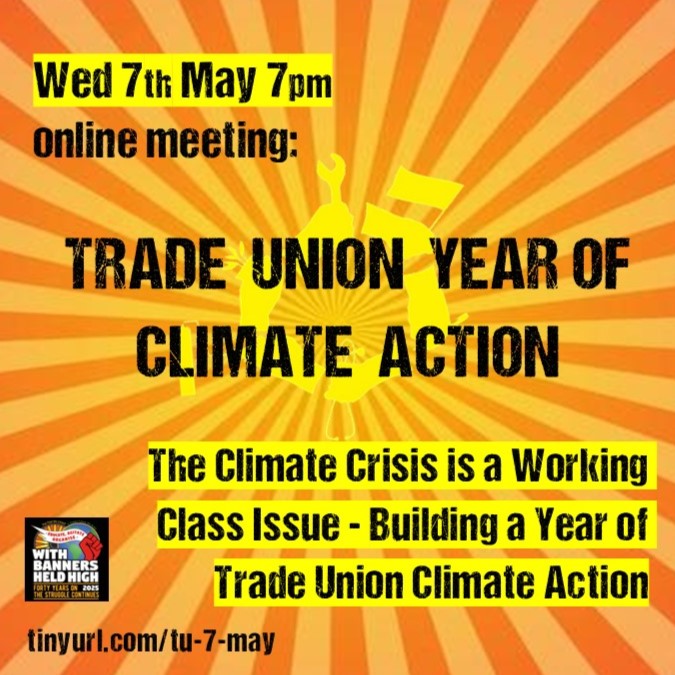
Manchester May Day Event 2025
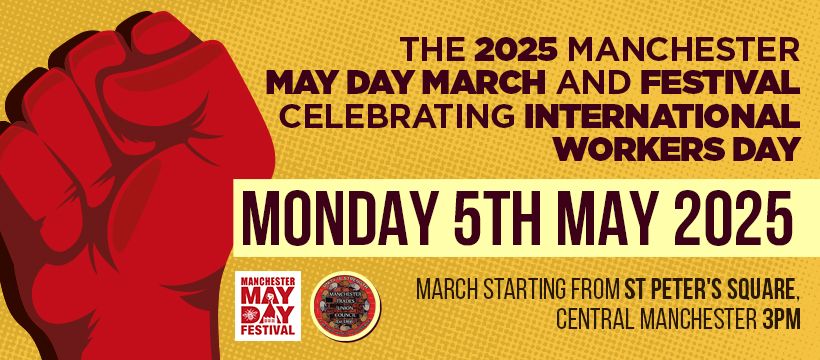
IWMD 2025 A day to remember, reflect, campaign and fight
28th April 2025: The observance of International Workers Memorial Day (IWMD) allows millions of people around the world to reflect on those who have lost their lives at work or because of the work they do. It is also an opportunity to keep worker safety on the agenda with a particular focus on prevention, campaigning and education. The Manchester event hosted an number of prominent speakers and held activities to ‘remember the dead and fight for the living’. As in previous years, GMHC along with partners coordinated the #IWMD25 event which was held at:
Location: Lincoln Square (near Town Hall), Manchester M2 5LN
Date: 28th April 2025
Running Order
OPENING:
Music in memory of local Singer/Songwriter, campaigner and IWMD supporter: Claire Mooney
PART ONE
Emma Runswick, a welcome from Deputy Chair of the BMA Council. Emma also introduced the guest speakers.
Gawain Little, General Secretary, General Federation of Trade Unions
Suzanne Humphries, Personal Injury Lawyer/ NW Regional Manager, Thompsons Solicitors
Alison Treacher, North West Unite Organiser
PART TWO
Hazards Street Theatre performance by writer, Michelle Graham TU Education Manchester College. Narrated by Janet Newsham. Starring Nige Williams as Arther Blunderwall, Ed Garner as Optimus Z34, Tony Whelan as PePE McSupersafe, Caroline Bedale as Fran Fullalove, Hilda Palmer as Eileen Dover and Sarah Clarke as The Barginator.
PART THREE
Tony Whelan, USDAW National H&S Officer
Joan McNulty, Assistant Branch Secretary/ Chair of North West and National Health and Safety Committee & Sarah Renshaw, UNISON North West Area Organiser/ Lead for Health & Safety
Rob Rayner, Co-ordinator Greater Manchester Asbestos Victims Support Group
PART FOUR
Hilda Palmer, Families Against Corporate Killers Statement
PART FIVE
Reading out some names of victims killed because of work in the North West.
Laying the wreaths and one minute silence.
PART SIX
Ending with a song by Nicky, then disassemble
Visit to then Peoples History Museum to see the IWMD display and for refreshments
Do workers need protecting from AI?
16th April 2025: One of the big questions of our time; ‘do workers need protecting from AI?’ Long seen as the stuff of sci-fi and futuristic worlds is actually with us right now, and expanding at a rapid pace. As part of the 2025 International Workers Memorial Day events around the country the Greater Manchester Hazards Centre is co-hosting a talk with Adam Cantwell-Corn on this very subject. This not to be missed free event will be held at the Working Class Movement Library in Salford.
Date: 30th April 2025
Time: 19:00 – 20:30
Location: Working Class Movement Library
Getting there and parking: click here
For more information and to book a free place click here
“It’s important that people understand that AI isn’t just robots, it’s software” Adam Cantwell-Corn
Unison Health Care Conference underlines the daily risks to workers in the care sector
9th April 2025: GMHC set up shop at the Unison National Health Care Service Group Conference in Liverpool which ran from 7-9 April from the ACC arena in Liverpool. Dozens of familiar and new faces streamed past asking questions and sharing information. By far the most common safety concern was violent incidents at work and the lack of both preventive and responsive action from some managers. There were examples of good practice too where highly functioning safety committees, trained safety reps and meaningful consultation with staff saw fewer incidents and less sick leave. It’s clear that care providers need listen to staff and fully focus on prevention.
Workloads and work life balance was a common topic with many delegates telling us about fatigue, burnout and high occurrences of sick leave. Some of the Unison activists were keen to hear about the 2025 Hazards Conference in September this year and several spoke about the poor response to colleagues affected by Long COVID and sexual harassment.
At the conference, motions and amendments in the health and safety sphere were ran from 29-36 on the agenda. These highlighted the shocking figures, inaction or impact relating to:
- sexual harassment in the NHS
- violence prevention and reduction – securing accountability
- protecting the victims of violent attacks at work
- bullying and harassment in the NHS
- support for health care workers who experience menstrual health conditions
- supporting health members – post-occupational health recommendations
- work life balance – time to change the balance
- NHS staffing shortages – women are losing out
‘Violence and harassment are not part of the job’ read more here
Other big ticket items included pay/ bargaining, career development, job security/ bank workers, social care, recruitment/ retention, protecting the NHS and a bigger focus on a greener NHS. There was recognition for the deaths and struggles of first responders in Gaza and the observance of International Workers Memorial Day which occurs on April 28th each year. The full programme and press releases can be found here.
New Greener Jobs Alliance Newsletter – out now (Issue no.71)
8th April 2025: New Greener Jobs Alliance Newsletter includes, new Green Toolkit, ULEZ Works, lifesaving trees, gassed off, green growth and much more. Issue 71 highlights some very silly economics and mind-boggling environmentally-damaging stupidity. Despite this and the current state of politics it’s also packed with optimism, grassroots initiatives and data to counter the Old Fossils. Free download here.
Northern Air Quality Conference, Bridgewater Hall, Manchester
25th March 2025: Conference was opened by Beverley Nielsen from Worcester County Council who acted as chair then introduced the first speaker, Professor Greg Marsden from University of Leeds. Prof. Marsden dispelled the myth that individual car ownership, including electric vehicles (EVs) and low emission vehicles were the answer to travel, safer and cleaner cities. Collaborating with other universities on the Infuze project, he stated that, even today, 75% of new cars use fossil fuels and despite the glossy adverts, hybrid cars are still reliant on fossil fuels. He argued that the obsession with car ownership remains the biggest obstacle to a cleaner and safer environment; not replacing like for like albeit with an EV replacement. EVs are heavier than petrol cars, the mining and disposal of the batteries, plastics and tyres remain a toxic problem and roads and streets remain clogged. Ripping up streets and installing EV charging stations again puts the car at the top of the community hierarchy. He noted that 96% of the time, cars lie stationary in a garage or street, for just an average of 1.5 passengers, yet the costs associated with having it idle are immense. According surveys conducted by Infuze residents prefer more space, community, serenity and character in their streets. Greg Marsden made a strong case on how to deliver this starting with seeing a diverse range of vehicles available to everyone. Think like tool hire, you might need a light van or a scooter or an EV for a weekend break, why buy one? Just ‘Share What Moves You’.
Katie Williams from the National Physical Laboratory (NPL) explained the government-led science behind measuring and quantifying air pollution. She took us on a tour of the various measuring stations which were primarily based in the southern part of England, Sheffield being an outlier. The work conducted is intended shape policy, provide advice to government and set the binding limits for air pollution. Katie did flag that some forms of air pollution are on the decline like lead from petrol since the 1980s but other are replacing it with the advancement of new technologies, chemicals, wood burners and still an issue with lead from tyres and brakes. More information and data can be found of the NPL/Defra website.
Panel Discussion
Panel: James Allen, University of Manchester, Jo Sutherland, National Physical Laboratory, Catherine Miller, Phd student Lancaster University, Mark Tebbut, Clean Air Campaigner Chorley, Lancs. Seán McCabe, Head of Climate Justice and Sustainability at Bohemian FC. Chair: Beverley Nielsen
The panel discussion explored the effectiveness of evidence and measurement to push the clean air agenda. The general consensus of the panel was more measurements were needed to build stronger evidence. This includes placing more value on cheaper forms of measurement (amateur recording, ‘citizen scientists’, community groups, schools etc), diversity in recording areas (more for northern industrial areas and in rural areas – e.g. wood burning, methane). Doubling-up; having various departments using or adding equipment to an existing measuring site. More emphasis needed on cooking at home, food outlets, rise in wood burning stoves/ heaters. The effects of air quality on biodiversity for example, small animals / insects with smaller body mass were impacted much more.
The panel agreed that air quality had to have more attention and be more accessible to more people. Reinstating air quality reports and not only the pollen count alongside BBC weather reports would be useful. Examples of educational initiatives; ‘Knitting the Air’ – knitting circle to show air pollution through design and discussion, ‘Campus in the City’ Lancaster University going into the city to talk about the effects of gas cooking, ‘Born in Bradford’ – monitoring the health of 60,000 residents in the city. The last guest speaker Seán McCabe, talked of one of four European football clubs and their launch of the ‘Clean Air Champions League’. The story is featured in the Air Quality News website. ‘Beyond the Blaze’ was also mentioned, where Professor Anna Stec, Professor of Fire Toxicity at the University of Central Lancashire looks at the rise in cancers and misdiagnosis in fire-fighters. The full article is available for free on Air Quality News.
Zack Polnaski, Deputy of the Green Party in England and Wales talked passionately about how large corporations were destroying not only the environment but democracy too. Critical of the top down approach from government rather than bringing the public on board was causing division and confusing narratives. Polanski used the failings of the Manchester Mayor’s office as an example of a missed opportunity for cleaner air rather than as he saw it, just tinkering round the edges. The speech moved onto a variety of areas including the injustices behind Zane’s Law, less cars not more EVs, improving public transport, heat pumps, pollution affecting the global majority particularly the poor and explained why phasing out of wood burners had not yet been voted on by party members.
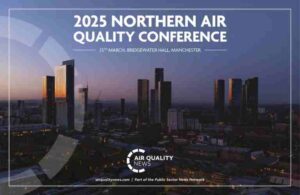
Ex- Councillor for Hackney, Jon Burke, relayed how air quality would be improved by re-imagining the public realm and by claiming the streets back. Residents in Hackney experienced 80% of cars passing through the borough adding nothing to the local economy or culture, just swathes of polluted air and the impact on the most vulnerable residents.
Professor Francis Pope from the University of Birmingham expanded on the physical and cognitive impact of air pollution. Apart from the 5-9 million premature deaths per year from air pollution, air quality can complicate or cause poorer health outcomes. Cognitive ability is affected in areas such as educational attainment, crime, behaviour, including through the early stages of pregnancy and infancy. Professor Pope noted that more work had to be done on routes of exposure, mouth and nose but hypothesised that this leads to inflammation, then eventually into the blood and brain. He illustrated the point through the effects of candle burning in a closed room experiment. It concluded that it took four hours to affect executive functions but underlined the ethical limitations and the need for more study. He noted that using particulate matter (PM) is often not helpful as it is a broad term and we should also be looking at the size, quantity and composition of particulate rather than this generic term.
The final speaker of the day was Liz Godfrey from campaign group, Mums for Lungs. The group started in 2017 and has 6 part time employees and lots of activist volunteers around the country. The campaign priority is to protect the health of children with Manchester being one of the worst polluted areas in the country. Acknowledging the comments from Prof. Pope on cognition, Liz focussed on the high rates of asthma, wheezing and respiratory issues presented to health professionals in Manchester. Levenshulme in Manchester for example has 40% rates of asthma in children and a 97% increase in children with respiratory conditions at Manchester A&E departments. This is twice the national average. Mums for Lungs meet regularly with Manchester Council to priortise their slow trajectory towards 100 ‘school streets’ in Manchester by 2028. The campaigners are regularly frustrated at the lack of progress from the city but keep the issue in the spotlight.
The conference was informative and was attended by like-minded delegates keen to promote the clean air agenda for health and/or business reasons. It was clear that recording data especially in the north was lacking in areas and the impact on workers was largely implied through the other topics discussed. However more detail on air quality and work can be found in back issues of Air Quality News – from procurement to agriculture, transport to emergency services, it is evidently an area that warrants attention and further discussion in the next Northern Air Quality conference.
Safety Reps and Asbestos Awareness Week 2025
27th March 2025: Asbestos Awareness Week runs from 1-7 April 2025. We’ve put together some handy links for safety reps. Safety reps play an important role in controlling workplace risks and can help to prevent exposure to asbestos. Safety reps are entitled to be provided with any information they need on asbestos, including any risk assessments and surveys. They should also be consulted on their employer’s plans to manage asbestos.
At-Risk Occupations
Construction Workers: Those involved in demolition, renovation, or maintenance of older buildings are at high risk, especially if asbestos-containing materials were used in the building’s construction.
Shipyard Workers: Asbestos was commonly used in shipbuilding for insulation purposes, putting workers at risk.
Industrial Workers: Those working with asbestos-containing materials, such as in manufacturing brake linings, insulation, or roofing materials, face a significant danger.
Electricians, Plumbers, and Carpenters: Workers who may inadvertently disturb asbestos materials while working in older buildings or facilities.
Anyone involved in renovation work, repairs or DIY on many 20th Century buildings, structures, facilities and infrastructure.
Asbestos Toolbox for Safety Reps
A Guide for Safety Reps (the 2006 Regs)
Asbestos: Time to Get Rid of It (6-page user friendly guide for reps)
Act Now on Asbestos (handy free guide for workplaces)
Specific Asbestos Resources (from the HSE)
A Guide for Trades (job-specific guide)
Handy Checklist (quiz your employer)
Help and Support (for those affected)
Asbestos: A Global Issue (Hazards Magazine)
Products containing Asbestos (from Mesothelioma.com)
Despite the widespread awareness of the dangers, asbestos-related diseases continue to affect thousands of people, especially those who were exposed decades ago. Efforts to remove asbestos from older buildings and prevent further exposure remain an ongoing challenge. Safety Reps are at the forefront in raising awareness of the risks of asbestos fibres and the law that governs this deadly substance.
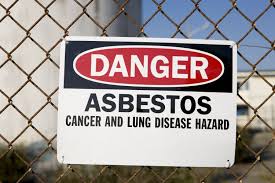
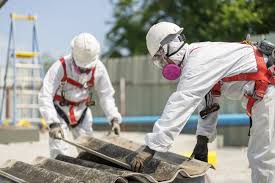

COVID-19: Five years on – the loss of loved ones and the loss of trust
11th March 2025: Today is the fifth anniversary of the WHO declaration of the Covid-19 pandemic in 2020. The day was marked by the North-West COVID-19 Trade Union Action Group in Astley Park, Chorley, Lancashire. A plaque, wreaths, banners and a tree highlight the impact the virus, and the response has on essential workers and their loved ones. Many today are still affected through the loss of family and friends or dealing with Long-COVID. COVID campaign groups around the country and the COVID Inquiry gives us an opportunity to learn, demand change and prepare for future pandemics (see our Covid-19 Charter here). Providing cleaner air for health workers would be a start. You can help by taking action now and Support the campaign for cleaner air in all health settings.
In the video opposite, Janet Newsham from the Greater Manchester Hazards Centre and the North West Covid group gives us a reminder about the impact and inadequate response both then and now. Below are some of the key points mentioned or discussed by the group.
The UK government’s response to the COVID-19 pandemic faced significant criticism for several failings, some of which had a lasting impact on public health, the economy, and the nation’s trust in leadership. Below are some key areas where the government was criticised:
– Delayed response to the crisis ‘herd immunity’ and slow lockdowns
– Ineffective and costly ‘Test and Trace’ system
– PPE shortages and healthcare strain
– Mixed messaging and communication failures
– Years of austerity and medium to long-term economic failures
– Care homes and vulnerable groups
– Delayed border control and travel restrictions
– Privatisation/ contracting out to favoured businesses
– Post-Pandemic mental health crisis
– ‘Party-gate’ and initial denial
– Logistical issues and mixed messaging on vaccine rollout
– Lack of transparency and accountability from decision-makers
– Little to no recognition or support for long-Covid and those with adverse reactions to vaccines
While the UK government eventually put together a vaccine rollout scheme and implemented several large-scale financial support measures, its initial response to the pandemic was widely criticised. Delays in key actions, inconsistent messaging, a lack of preparedness, and failures in protecting the most vulnerable were among the most notable failings.
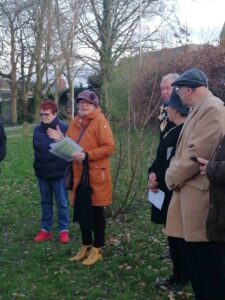
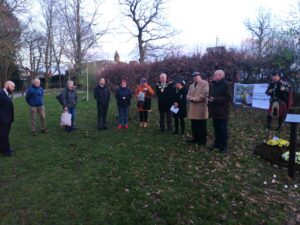
International Women’s Day 2025 ‘Accelerate Action’
7th March 2025: International Women’s Day 2025 uses the iconic pose of Rosie the Riveter combined with this year’s theme – ‘Accelerate Action’. The theme can be adapted to have many empowering meanings for the 8th of March and beyond. Some of the posts on social media want to accelerate action on:
- Stereotypes
- The gender pay gap
- Equality
- In sport
- Protecting women at work
- Into leadership roles
- A say on their body and health outcomes
- Developing talent and skills
- Decision making locally and internationally
GMHC has pulled together some links celebrating the historic achievements of women, current developments and some challenges still ahead.
The Silent Killer, Still Here and Waiting to be Disturbed
24th Feb. 2025: It might sound like a Hitchcock film but this silent killer is very real, and everywhere. Despite the 1999 ban, asbestos is still found in buildings, structures, old appliances and homes built before the year 2000. If asbestos is disturbed and inhaled it can cause a number of serious and fatal health issues. There’s no safe amount of inhaled asbestos fibres and anyone can disturb it.
Even more concerning is that a recent survey by High Speed Training showed that almost half the trades people surveyed think asbestos is an issue associated with the past. Furthermore over a quarter of respondents revealed that they hadn’t followed the correct removal procedures when it was discovered.
These accounts highlight the painful legacy of asbestos here and now and how it still needs urgent attention today. The survey also showed that 55 per cent either disagreed with or were unaware of the fact that asbestos is the biggest workplace killer. Similarly when the public were asked the same question, over 70 per cent said they hadn’t been concerned about asbestos at home or at work.
Clearly there’s still a lot of work to raise awareness of this killer which is estimated to be in well over 1.5 million British buildings. Better training for the 1.2 million trades people, more inspections and accountability, a public awareness campaign, a national register of asbestos and more support for the 5000+ people in the UK affected each year would be a start.
For more on this topic see the GMHC stories below from 4th Nov. and 5th & 18th Dec. 2024. Also see the Hazards campaign guide on asbestos and the HSE’s Work Right guide opposite. For employers see legal duties here.
Scottish Hazards: One Day Conference for safety activists – 27th Feb. 2025
18th Feb. 2025: The 24th annual Scottish Hazards conference will be held on 27th February 2025 at the City of Glasgow College, Riverside Campus, Glasgow G5 9XB.
The one day conference begins at 10am and includes lunch. To book and find out more information click here.
For more about the work of Scottish Hazards see https://hazards.scot
Toilet breaks are a basic human right? Not for every worker
18th Feb 2025: Following on from our article (see ‘Bursting to Go‘ below from 19/11/24) on toilet facilities and breaks at work, there’s an opportunity for workers to be heard through their safety reps in coordinated action around the country. Between March 17-23 this year, a TUC campaign will aim to highlight the state of toilet arrangements in workplaces through ‘toilet inspections’. These safety rep-led inspections will use a checklist to document facilities and toilet breaks in workplaces, help with a plan to address issues as well as learn from good practice.
Join in by registering
Do you have good enough toilets and toilet breaks? Join the activity by registering here
Not yet in a union or interested in becoming a safety rep?
Find your union here and get involved.
Further information – what the law says on welfare at work
The Health and safety Executive (HSE) provides an easy guide for employers and workers by summarising the requirements of the Workplace (Health, Safety and Welfare) Regulations 1992. Click here.
For detailed information on toilet breaks and lots of free resources see the Hazards Magazine here
North-West Public Services: Assaults and aggression meets inaction
13th Feb 2025: At a recent North West Safety Reps meeting there was a clear message from reps across several unions that assaults and violence at work are at epic levels. They said that ‘assaults, whether verbal or physical have become the norm in many public services’ including schools and in health settings. Several safety reps fear for their colleagues and are frustrated at the lack of action from management. Apathy has spread due to inaction from leaders when issues have been reported and the cuts and recruitment freezes are exacerbating the problem according to workers. One health professional said that, a colleague was working ‘30 hours straight in back to back shifts due to staff shortages while facing constant risks from unpredictable service users’. Another pointed to risks from ‘unauthorised visitors’ on site and added, ‘anyone without a valid reason to be in a hospital or health centre should not be in there’.
In schools, reps have observed the lack of action when teacher-parent/ pupil relations have become strained. Conversely school leaders have demonstrated swift action when it has been staff on staff tensions – why not zero tolerance to all forms of aggression and violence?
Sickness levels, cover arrangements and excessively long shifts for those remaining compounds the problem further. One rep noted that, all public services are now dealing with the added pressure of spikes in the number of complex mental health issues presenting themselves. Reps have reported the daily risks and lack of support in dealing with the most challenging of these cases; many are readily assigned to the ‘at-risk register’ as a misdirected quick fix.
The feedback to the Hazards Campaign has been than the whole system needs to be looked at particularly in areas like staffing levels, accountability, training, enforcement and prosecutions. ‘A zero tolerance approach to violence at work has to be the starting point and everything else can be built around that’ was echoed by several reps.
From inaction to action
One of the UK’s largest unions in schools and health, Unison was successful in getting the Assaults on Emergency Workers (Offences) Act 2018 on the statute books and have been campaigning to expand and enforce this even further ever since. The Unison Violence at Work Charter is one step in that direction and sets out the minimum that will enable workers to come home from work safely. Union safety reps are leading the way in pushing back on unacceptable risks to their colleagues.
The International Labour Organisation’s (ILO) Treaty also named: Convention C190, of which the UK is a signatory, sets out,
‘the right of everyone to a world of work free from violence and harassment, including gender-based violence and harassment’.
With the preventive intent from various bodies, it’s now time to enforce and resource them or, in the words of safety reps;
‘a zero tolerance approach to violence at work has to be the starting point and everything else can be built around that.
Have a heart for ride-sharing drivers this Valentine’s Day
12th Feb. 2025: Drivers working for apps like Uber, Bolt and Addison Lee are at a breaking point, reports the IWGB union. Poverty pay, high car rents, brutally long hours to try and make ends meet with the threat of unfair ‘deactivation’ hanging over drivers heads are having a devastating financial, physical and mental impact on them and their families. Drivers’ lives are being torn apart by these companies in their endless pursuit of profit. The Hazards Magazine has previously reported the risks to these drivers/ riders and the lack of accurate accident reporting in that sector. Without drivers, these companies are nothing but apps. The long hours, hard work, minimal protections and low pay is what makes these companies post significant profits each year.
In November 2024 a group of IWGB drivers agreed and voted to call a ‘log-off’ on Valentine’s Day, 4pm-10pm on Friday 14th February, a busy night for drivers and a strategically important moment to maximise impact. The workers said, it is the perfect opportunity to bring drivers together, flex collective strength and to send a strong message to these bloodsucking apps.
Join or contribute to the Valentine Log-Off campaign here
Precarious Work: Giving student-workers a voice in Manchester
11th Feb 2025: As part of the TUC’s #HeartUnions week (10-16 February 2025) GMHC went along to offer support to student activists at Manchester University today. This independent group of self-organising students led by Alec Severs has support from the TUC and the UNITE union. Their aim is raise awareness of the importance of joining a union for working students. Tireless young-worker campaigner and Hazards Conference speaker, Fraser McGuire (UNITE) posted;
‘At a time when many young people are working on zero hours contacts, it’s especially important to encourage them to join and become active in a union – and #HeartUnions week is a great opportunity to do this!’
Alec Severs said that, ‘over 53% of working students were working and unaware of their basic rights at work‘. Young workers are particularly at risk from long hours, harassment, low pay, stress and other safety issues. (See young workers news story below – 6th Nov. 2024).
Alec describes the #HeartUnions activity as;
‘an informative stall in the University of Manchester’s Students Union to raise awareness of the importance of unions to the student body and wider community. With ever more students taking on precarious work alongside their studies – there is a great need to build the union in university spaces.’
GMHC provided leaflets explaining the rights for working students, whether they are interns, apprentices, working casually or in the gig-economy. Leaflets included Using the Hazards Training Safe app, How to Report Workplace Accidents, Clean Air at Work and the GMHC Pocket Guide to basic rights for young workers.
Latest edition of the Greener Jobs Alliance Newsletter out now
10th Feb. 2025: The 69th edition of the Greener Jobs Alliance Newsletter is out now. Find out how the Trump administration is struggling to buck the trend in the shift towards renewables – as China moves forward, Climate and Nature Bill update, UK: vote for change to get more of the same, Frack Off, a just transition for skills, the case for free public transport, diary of events, the back page stats and much more.
Justice for workers killed by COVID and for those living with Long COVID. Not forgotten.
7th Feb. 2025: For many people the COVID pandemic is not over. Today there are many thousands of workers including nurses and carers grieving the loss of loved ones and living with the debilitating effects of Long-COVID.
The Hazards Campaign through the North West COVID Action Group attended the COVID Inquiry in Manchester today. The COVID Inquiry is running its ‘Every Story Matters’ events around the country with the Manchester leg in the Town Hall extension from 6-7 February 2025. The event provided an opportunity for the public to share their experiences of the pandemic with a view to informing the wider inquiry. Counsellors were on standby and the organisers said that over 54,000 stories have been captured already. (See news story below from 13 Dec. 2024)
Members of the North West COVID Action Group went along to highlight failings in the pandemic response, share tragic stories and relay the ongoing challenges many workers are facing today. The North West COVID Action Group wanted to be clear in its message that, many of the workers seen as heroes during the pandemic also lost loved ones and are now dealing with the effects of Long-COVID. Many workers, in the disproportionately affected North West, not only face chronic health conditions but have also lost their jobs, or are being slowly managed out and being ignored. The impact on physical and mental health, career, relationships and finances are immense for the many dealing with Long-COVID.
Janet Newsham from the campaign group spoke to the Manchester Evening News;
“We clapped for them every week, now we’re sacking them because they’re not in work. It’s not right. We want to put on record what happened to workers to the inquiry.”
“…the workers who were killed, we believe a lot of infections could have been prevented with proper mitigations. And also those who were left traumatised by what they saw or experienced. We want to hold these people to account.”
With the Inquiry now in its third year and no clear end date, many want to see action now on airborne infections and support for those who are still affected. Even if implemented any recommendations from the inquiry will be a long way off for those who need the help now.
Looking to #IWMD25 and beyond, the ILO outlines theme for workers
5th Feb. 2025: Ahead of International Workers Memorial day (IWMD) on April 28, the International Labour Organization (ILO) releases its theme aimed at protecting workers. Employers and government must fully engage with workers when transitioning to new ways of working. Automation, AI, algorithms, surveillance etc will significantly impact workers (see new story below from 7th Dec. 2024). Extract and link to the full ILO campaign below:
The 2025 World Day for Safety and Health at Work will focus on the impacts of digitalization and artificial intelligence (AI) on workers’ safety and health.
This theme will examine various new technologies through an occupational safety and health lens, including:
– Advanced robots
– Artificial intelligence (AI) and machine learning
– Exoskeletons
– Unmanned aerial vehicles (UAVs)
– Internet of Things (IoT)
– Virtual and Augmented Reality
The campaign will also shed light on new work practices, such as automation of tasks, big data analysis, smart digital systems and workers management through AI.
New technologies have also given rise to new types of work, such as digital platform work and remote work/hybrid work/telework, which will be further examined.
The ILO will produce a report and other promotional materials examining these critical issues, looking at how the digital transformation of work may support safe and healthy working environments and what governments, employers and workers and other stakeholders are already doing to respond to these emerging challenges.
See link to the Hazards Campaign event and other #IWMD25 events around the country here.
Climate Change: ‘Reduce emissions, invest in fire and rescue services’ (NFCC)
3rd Feb. 2025: Climate Change: Like with the pandemic response, front-line workers take the heat due to poor planning. ‘Britain is not fully prepared for climate change‘ according to National Fire Chiefs Council. With more call-outs to more climate related incidents and fewer resources, preparedness must be a top priority for any government.

Getting the ‘right to switch-off’ right
30th Jan. 2025: While we’re waiting to see what emerges from the long passage of the new Employment Rights Bill it’s worth looking back at Labour’s pre-election Plan to Make Work Pay paper. In particular the section entitled the ‘Right to Switch Off’.
We will bring in the ‘right to switch off’, so working from home does not become homes turning into 24/7 offices.
The TUC estimated in 2023 that workers worked on average 7.2 hours extra per week – for free! That’s a black-hole busting £26bn worth of unpaid work in just one year. For many workers the blurring of their home/work life and the rise in ‘take home tech’ makes this all too easy. As French politician Bonoit Hamon put it;
Employees physically leave the office, but they do not leave their work. They remain attached by a kind of electronic leash—like a dog. The texts, the messages, the emails—they colonise the life of the individual to the point where he or she eventually breaks down.
Currently Spain, Portugal, Belgium, Australia and Ireland have incorporated the right to switch through various approaches from legislation, code of practices and collective agreements. The details of any UK proposals are unclear but the TUC suggests amending the Employment Rights Act 1996 with a new section outlining the rights, enforcement, disputes and protections. Incidentally an IoD survey found that 58% of business leaders disagreed with the right to disconnect for employees. The IER provides a much more representative assessment on those whose lives, relationships and health will be impacted the most. Another new study shows how Brits top the table in Europe for most unexpected working hours and why a good work/life balance is essential.
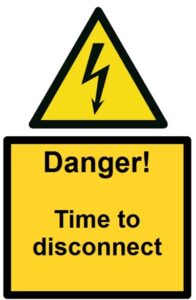
Much of the debate in the UK is about responsibility, whether to legislate or have an agreed code around switching off. The health impact on excessive hours and being sedentary are well known but the psychological impact is becoming clearer through related studies.
Until workers are fully involved in decision-making with genuine consultation and their rights enforced, it’s hard to see how legislation or a code of practice would be enforced. Currently many workers face daily abuse, assaults, illness and even death in workplaces like schools, hospitals, shops and transport. Safety reps tell us that this is being normalised due to management culture, cuts, deregulation and endless austerity. It’s time to build back the basics again and give workers the support and protection needed to work in safety. Resourcing and using a worker-led approach to safety with a restored regulator would be a first step in preparing for the challenges of new technologies including AI.
PFAS – Our Chemical Romance
28 Jan. 2025: With PFAS or ‘Forever Chemicals’ hitting the headlines again, this time in Jersey, West Virginia and North Carolina, it’s a poignant reminder that profits, convenience or cost-cutting comes before the health of workers, the public and the environment. Due to the high prevalence of Forever Chemicals (10,000+ of them) in our everyday life, they are also destined to become ‘forever news stories’. See our Hazards story on PFAS from 2023 and why it remains a core demand in the Hazards Manifesto.
PFAS derived substances have been in use for over 70 years and can be found in clothing, smart watches, cosmetics, kitchenware, tech, packaging and fire-fighting foam to name a few. In short, they end up in food and water then can go on to mess up fertility, hormones, are linked to nasty forms of cancer and greatly affect wildlife.
The Chem Trust has an easy two-step campaign to keep your local MP accountable on this issue. Help to protect workers, the wider public and stop the UK falling behind European standards by taking part. To use or edit the template letter click here.
Agroecology workers survey -‘burnt out, overworked and underpaid’
25 Jan. 2025: A recent workers’ inquiry into labour conditions in agroecology (land trades) presents shocking findings including low pay, isolation, stress, long hours and significant risks to worker safety.
Inquiry Summary
‘Workers love working on the land, but reported high levels of precarity and burn out, sometimes labouring below the minimum wage and often without contracts or statutory benefits. Some felt that the ecological or social goals of the enterprise were used to excuse poor working conditions, whilst an overwhelming majority had experienced or witnessed discrimination at work. Workers felt lonely, stressed, and isolated, and found it hard to connect with other workers, working alone or with a small workforce. They were unaware of their rights as workers and did not know how to organise or felt concerned about reprisal from their employers if they did so.
Relationships with employers were complicated through friendship, or through an employer being a workers’ landlord (or both). The lack of a trade union in the sector and not knowing where to turn to were identified as key challenges to organising. The picture gained from our findings is an informal sector widely reliant on the goodwill and passion of workers, without offering decent pay or the ability to progress into sustainable roles.’
On worker safety it notes, ‘Informality at work could lead to a complacent attitude towards health and safety. Workers were concerned about their physical health and seven had sustained an injury at work.’
Solidarity Across Land Trades
Solidarity Across Land Trades (SALT) is a grassroots trade union organising for fairer conditions, solidarity, care and justice. We are a collective of workers, trainees, freelancers, co-op members and volunteers who are employed by others in land-related trades. We fight for better standards of pay, working conditions and cultures within our sectors, support our members with workplace issues and build community between landworkers and wider social justice movements.
The Bakers Food and Allied Workers Union
The Bakers Food and Allied Workers Union (BFAWU) is the only independent Trade Union operating within the food industry and have been representing working people since 1847. With a proud history of achievements including on worker safety they continue to represent and fight for a better deal for members.
Safety, Health & Well-being Live in Manchester
23 Jan. 2025: One of this years Safety, Health & Well-being Live events took place at Manchester Central between 22-23 January 2025. With up to 200 exhibitors running alongside talks from nearly 100 speakers, GMHC went along to find out more.
Chair of HSE’s keynote speech and a chat with GMHC
Kicking off a series of talks around the hall was the well-attended Health and Safety Executive (HSE) keynote address by Chair, Sarah Newton. Sarah Newton responded to a number of set questions during the 45 minute session. Topics included the Health & Safety Act at 50, the future of health and safety, the new Building Safety Regulator (BSR), the challenges of tight resources, inspections, accountability, the 10 Year Strategy and mental health – with a focus on education and prevention.
Continuing the prevention theme was the second speaker, Steve Forman – HSE Principle Medical Adviser who talked of the Workplace Health Surveillance initiative (also see GMHC story 14th Nov below). Health surveillance according to the HSE is:
‘…a scheme of repeated health checks which are used to identify ill health caused by work. Health and safety law requires health surveillance when your workers remain exposed to health risks even after you have put controls in place. This is because control measures may not always be reliable, despite appropriate checking, training and maintenance. Health risks which require health surveillance include noise, vibration and substances hazardous to health.’
Other HSE talks included An Introduction to Safety Culture Assessment and Noise and Hearing Loss in Industry. According to HSE stats hearing loss related to work is on an upward trajectory.
Work-related suicides
GMHC took the opportunity to put some questions directly to Sarah Newton about issues that have been raised with Hazards by workers. With International Worker’s Memorial Day (IWMD) on April 28, what will the HSE do about collecting and presenting more accurate data on work-related suicides, e.g. through RIDDOR and better reporting?
Sarah Newton outlined how she thought that the ‘current system where the Coroner investigated suicides, with assistance from the HSE’ and to pass on their work-related assessments back to the HSE was ‘adequate’. There were ‘no plans at present to change that unless the new government seeks to amend the current scope…’ in future. The Hazards movement have been very vocal on this matter for a number of years and highlight the issue at each Hazards Conference and IWMD events.
The Hazards Magazine in 2017 stated that;
‘In the UK, work-related suicides are not officially monitored or recorded. In the absence of official data or evidence, public authorities and employers have been able to turn a blind eye. Unless workplace suicide is socially and legally recognised and data is collected centrally, then the conditions which lead to suicide will remain intact and will continue to inflict misery on thousands of employees. It is urgent that we recognise, document and analyse workplace suicide, so that we can deal with its devastating human and societal consequences.’
The UK stands out from other countries by not formally reporting workplace suicides and in an era of cuts and deregulation it looks unlikely to change anytime soon.
Toxic dust at work – asbestos
On the topic of better prevention recognition and provision for those affected by toxic dust at work like asbestos, Sarah Newton referred GMHC to the current work of Minister of State, Stephen Timms MP. His recommendations, when they are released will be considered and various models are likely to looked at in terms of budgets, effectiveness and government priorities. Sarah wouldn’t be drawn on further details, stakeholders or timings but encouraged GMHC to get in touch directly with the minister.
GMHC flagged the lack of safety ambitions in the pre-election Labour manifesto and the Employment Rights Bill currently making its way through parliament at present. Sarah Newton appeared optimistic that the new Bill in its current state would be a welcome start particularly in areas such as statutory sick pay (see GMHC article below 15th Jan.) and employee status.
Mental Health
On mental health at work, GMHC drew attention to our Accident Book Survey undertaken in November 2024 (see 11th Dec. post) where is was clear that accident books were mostly being used in unionised workplaces at least, but mental health incidents were rarely recorded if at all. Sarah recognised the work to be done in educating workplaces and reminded GMHC about the employer obligations and the HSE Toolkits available.
The work of the HSE is clearly valuable but like with any public regulator it is only as strong as the political will and funding to make it work. GMHC put it to Sarah that doing nothing or staying the same is a choice, and a more expensive and high risk one at that. Sarah nodded in agreement and added that, ‘it’s a challenge to get prevention seen as an investment, not just an upfront cost.’
British Safety Council and Men’s Mental Health
Meeting with other exhibitors at the Live Safety event in Manchester GMHC met with the British Safety Council who were there to promote Tim Marsh’s book Wisdom and Wit From a Safety Psychologist. The book is to help aid mental health charities that focus on the construction industry, Mates in Mind and in Wales Brawd, a men’s mental health charity.
Work-related road deaths – National Highways
In talking with Jim Magner, manager of the from National Highways programme – Driving for Better Business, GMHC pointed to the limited information and accurate figures surrounding work-related vehicle deaths in the UK. Jim Magner agreed that accurate figures were a challenge and that the recording of the information at the scene could be improved through training and awareness for first responders. Recording relevant data, the rise of the gig economy, vehicle suicides and identifying work-related vehicles – particularly cars, appear to be obstacles in obtaining accurate fatality data in this sector.
PPE and Women
GMHC took the opportunity to talk to some exhibitors such as, safety wholesalers, Slingby, the British Standards Institute (BSI) and others about PPE. Trade union women and safety reps have previously mentioned to GMHC that finding PPE suitable for their physique and working environment remains a concern. The ‘standard-fit’ PPE in most industries could be potentially putting many women at risk. The exhibitors were highly responsive to this issue and conceded that this was something that hadn’t been on their radar. See Putting the Personal into PPE here.
The next Safety, Health & Well-Being Live event will be in London in June 2025.
What is happening with long-COVID at work and protecting workers?
22nd Jan. 2025: Let’s talk about how long-COVID is affecting workers and what we can do to protect them at work. This will be a hybrid meeting. If you would like to attend online please email janetnewsham@googlemail.com for the zoom details.

Those in person at the venue will hear from speakers covering Personal Injury cases, Reasonable adjustments and disability discrimination and cases being dealt with by trade unions. We will also hear from a nurse who is living with long-COVID. See booking details here.
Greener Jobs Alliance Newsletter No.68
16 Jan 2025: The latest edition of the Greener Jobs Alliance Newsletter (Issue 68) is out now.
Brazil – ‘Tax the billionaires’🤑A much needed Climate & Nature Bill🌳UK bus fares rise by 50% 😱, The embarrassment of Tesla owners🫣, City emissions: Bradford leads the way🏭 Spain: Climate Change leave for workers 🇪🇸. All this and much more click here.
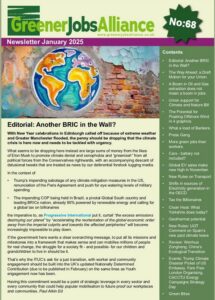
A golden opportunity to fix the shameful mess of British Statutory Sick Pay
The UK has the worst Statutory Sick Pay (SSP) scheme in the developed world.
15th Jan 2025: Recent research by the TUC shows the UK’s statutory sick pay is the worst in the OECD (38 developed economies, Iceland being top). In the UK, it works out at only 18% of the average weekly wage.
- Only 54% workers get full pay
- 28% get SSP
- 10% get nothing
We’re calling for:
- SSP available for all workers
- Removal of 3 day wait for payment
- An increase to SSP
A once in a generation opportunity
With the new Employment Rights Bill there’s a once in a generation opportunity to change the law. You can help workers to win higher Statutory Sick Pay so everyone can afford to get well sooner. As one of the richest countries in the world it’s affordable, it helps workers avoid getting into debt, coming to work sick and takes pressure off the NHS. Fully recovered and well workers are better, healthier and safer workers.
What you can do right now
Take part by contacting your MP and show how much this matters. Please share with your family, friends and through your networks. At least 155 MPs from different political parties across the UK have agreed to publicly support the campaign but more support is needed. Seize the momentum while the Bill is still being progressed through parliament.
Further Information
Birmingham City Council restructure – a blow to pay and safety for refuse collectors
7th Jan. 2025: Birmingham refuse collectors will start a series of strikes on selected dates from this week until early April 2025. In a double blow to workers, the Council’s refuse services restructure will see not only see attacks on pay but on worker safety according to Unite, the union representing affected workers.
One of the key concerns is about abolishing the safety-critical role of Waste Recycling and Collection Officer. Despite assurances on safety from the employer, new lower-paid roles could unnecessarily put workers at risk and see many lose £8k a year in pay and pensions.
Unite general secretary Sharon Graham said: “Unite is not prepared to see its workers face a huge pay cut, nor will it allow the council to recklessly cut safety critical roles which risks the safety of workers and the general public. Unite is totally focussed on protecting the pay and safety of its members and will leave no stone unturned in resolving this dispute.”

It won’t be lost on refuse workers that exactly two years ago this month experienced refuse collector David Carpenter was killed in an avoidable tragedy by becoming caught in his vehicle machinery. The verdict from the Coroner’s Court was that, more could have been done to prevent Mr Carpenter’s death and pointed to a series of failings by the employer and manufacturer of the vehicle. Officially, Mr Carpenter is one of nearly thirty workers and members of the public killed through refuse collecting in the last 5 years but the figure is likely to be much higher.
In highly hazardous occupations like refuse collecting, all practicable safety measures should be carefully considered with workers at the core. Safety can’t be done on the cheap or by changing job titles and no one should be faced with the prospect of being injured or killed at work. For more see Unite News or join Unite here. For feedback, questions and comments to Birmingham City Council click here.
New reports raise further health concerns for firefighters who attended the Grenfell Tower fire
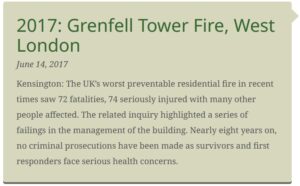
3rd Jan. 2025: The preventable deadly tragedy of the Grenfell tower fire comes back into focus again with two new reports highlighting the physical impact on the health of firefighters. The reports, ‘Grenfell Tower Fire: Toxic Effluents and Assessment of Firefighters’ and ‘Firefighters’ Activities and Their Exposure to Fire Smoke and Heat’ is based on research from the University of Central Lancashire assisted by the Fire Brigades Union (FBU). Published today by the Journal of Occupational and Environmental Medicine both reports give an insight into the first 20 hours of exposure to toxic smoke for firefighters. Drawing from a variety of sources it assesses the health of 524 firefighters over 3 years with alarming conclusions summarised by the FBU:
• 136 firefighters who were exposed to toxic smoke at Grenfell are now suffering from occupational diseases
• 1 in 4 Grenfell firefighters surveyed have reported life changing health effects since, including 66 cases of digestive diseases, 64 respiratory diseases, 22 neurological diseases and 11 cancers
• 65% reported exposure to smoke with 23% exposed to heat and smoke
• Most of the 136 firefighters reporting health disorders had not worn respiratory protection at some point during their work owing to the severity of the incident.
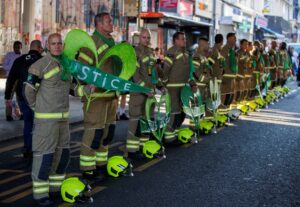
Despite the fact that firefighters are exposed to toxic and carcinogenic particulate throughout their careers, the report further reinforces the WHO and FBU calls for regular health monitoring in the UK for all firefighters. The report doesn’t look at the ongoing psychological impact on firefighters nor the background and concerns about equipment but does note the Grenfell Inquiry Phase 1 and 2 as source material.
Seasons Greetings from all at GMHC
20th Dec. 2024: A thought for the workers keeping us safe over Christmas and to the unions who will look after those workers and keep them safe. Have a happy and safe festive season from all at GMHC.
GMHC will be closed from 24th Dec. 2024 and will reopen on 2nd Jan. 2025.
18th Dec. 2024: Law firm, Leigh Day’s Asbestos department has officially launched a website called “Mesothelioma And Me”. It includes films which feature six of their clients who have been diagnosed with mesothelioma and sets out their thoughts from onset of symptoms, through to diagnosis and receiving compensation for mesothelioma.
GMHC previously reported on Leigh Day Partner – Harminder Bain and her very personal and passionate speech at an event in Parliament last month (see below). Harminder’s father was diagnosed with mesothelioma and her family were desperate for information and to understand this deadly disease. In an attempt to help others Leigh Day has created a series of films showing the impact on those affected. There are also answers to the most common questions by specialists Professor Peter Szlosarek and Dr Riyaz Shah. Through these films, Leigh Day seeks to ensure the voices of mesothelioma victims are heard, offering hope, strength and solidarity to others facing similar challenges on their paths to justice.
Leigh Day have been dealing with asbestos disease legal cases for nearly 30 years. On their website they say that many of their clients have benefited from hundreds of thousands of pounds of life-extending treatment which they would not have received on the NHS.
You can see more on the Leigh Day website page: Mesothelioma And Me: Spotlighting the dangers of asbestos
Leigh Day is also supporting the Asbestos Victims Support Group Forum’s CapeMustPay campaign, which seeks £10 million to be paid to Asthma + Lung UK by Cape, one of the largest manufacturers of asbestos products in the UK, to fund research into finding a cure. Cape Must Pay! – Asbestos Victims Support Group Forum – UK
Covid-19 Inquiry: ‘Every Story Matters‘ – An Opportunity to be Heard
13th Dec. 2024: Last month GMHC joined with our trade union partners in another NW Covid Action Group meeting. The main agenda item was a presentation by guest speakers from the Covid-19 Inquiry. They talked about the Inquiry as well as the next stages namely, Every Story Matters. In the overview of the Covid-19 Inquiry there was particular reference to the structure including the Modules. It was recommended that interested parties should sign up to the Newsletter as there are events and new documents regularly being updated. There was a focus on the current Module 10 which looks at the Impact on Society particularly; key workers, the most vulnerable, the bereaved, mental health and well-being.

Every Story Matters [extract]
The pandemic affected every single person in the UK and, in many cases, continues to have a lasting impact on lives. Every one of our experiences is unique and this is your opportunity to share with the Inquiry the impact it had on you, your life, and the other people around you.
You can share as much or as little information as you feel able. We understand that reliving some of your experiences may be difficult. You can start it now, and come back to finish it when you feel ready. Emotional support is available if you feel this would be helpful.
The speakers told the meeting that Every Story Matters will be individual accounts and the themed reports will be known as ‘records’. It will seek to:
1. Get people to tell us about their experience
2. Effect on individuals and those around them
3. What can be learned from the above
Q&As
- Confidential? The feedback can be anonymous / will be anonymised and questions. 2 – 3 are optional.
- Age Range? This particular module is for over 18s only
- Accessibility? Various formats are available to encourage wider participation email: contact@covid19.public-inquiry.uk
- In Person? There will be a series of events around the country to promote and support this initiative.
Manchester – Every Story Matters Event
Date: Thursday 6th & Friday 7th February 2025
Time: 10:30am – 5:30pm
Location: Manchester Town Hall Extension (Entrance through Manchester central library). St Peter’s Square, Manchester M2 5PD
- Previous Modules? Past modules can be mentioned in feedback
- Support? Self referral service for support and counseling if required
- Attend Hearings? To attend Inquiry hearings, see Reservation system
- Collective feedback? Yes, share both individual and collective stories. Individual stories are the priority but the Inquiry is keen to hear of the effects on the people you know. Noting that there’s 30,000 stories on healthcare and 50,000+ stories in total so far. Many reports are already published including a short video version
- GMHC will be working with the Institute of Employment Rights early next year on a Covid claims awareness conference, details to follow.
- Where to start? https://www.everystorymatters.co.uk

GMHC Accident Book Survey: An Accident Book Waiting to Happen
11th Dec. 2024: From October to November 2024 GMHC and the North West Safety Reps distributed a survey for safety reps on the use of accident books in workplaces. The survey was aimed at capturing whether workplace accidents books were being consistently used, how they were being used and what was being recorded and the rates of follow up.
The survey was sent to all safety reps in the North West, affiliates and other relevant contacts from the GMHC mailing list. Recipients were asked to share the link with other reps in their workplaces and asked if they would be interested in joining the NW Safety Reps Network.
The survey was open throughout October and closed on the 11th November 2024. There was just over 50 detailed responses. The information from the survey has been collated below and was discussed at the meeting in late November. Although the numbers of respondents were small it was only aimed at union safety reps in the North West on the GMHC mailing list but it gives us a fair sample of current practices.
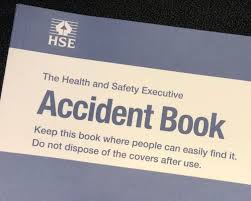
Overview of survey responses
The main respondents were from the following sectors; health/ NHS, education, transport/ logistics, communications, local authorities and retail. Safety reps from the CWU, UNITE and UNISON were the largest responders with the GMB, NASUWT, USDAW, UCU, RMT, PCS, FBU, TSSA and societies including Radiographers and Physiotherapists reps also making contributions.
Accidents recorded?
88% had some form of recording workplace accidents/ incidents. With two-thirds of them using an electronic recording system e.g. online/ apps.
Worker awareness?
86% recorded having a system of reporting that most or all workers were aware of,
10% were unsure and
4% didn’t have a system in place.
Recording of near misses?
57% indicated these were always or frequently recorded while
40% indicated that they were rarely or never recorded. 3% unknown
Work related stress incidents reported?
68% were rarely or never recorded
17% were unsure
15% were always or frequently recorded
Serious incident/ near miss – reported immediately to the safety rep to allow an investigation?
59% were rarely or never reported to a rep
35% were frequently or always reported to a rep
6% did not know
Reporting back to workers?
Most workers received reports or updates via workplace meetings or safety committees. With Online or noticeboards and unions the next most common way to receive updates.
Follow up?
On the question ‘How are accidents usually followed up?’ There was a roughly equal mixture of different practices in place ranging from, ‘not known’, ‘they’re not’ and ‘reps are excluded’ to ‘good’, ‘engaging’ and ‘some form of process’.
Reporting culture?
With the question ‘How do you feel in general about accident reporting at your workplace?’
62% had a negative or could be improved view of their current reporting system with the remaining percentages indicating more favourable responses. The survey showed that with a safety rep, workplaces were more likely to be aware or record physical accidents. A study from legal firm Simpson and Millar noted that workplaces in general had 64% of injuries going unreported.
Employers with more than 10 employees must keep an accident book under the Social Security (Claims and Payments) Regulations 1979, that record will be enough to record most minor accidents. All serious workplace accidents should be reported under the Reporting of Injuries, Diseases and Dangerous Occurrences Regulations 2013 (RIDDOR) and the accident book. This includes psychological, physical and near-miss incidents. It’s vital to have a record of any injuries, sharing this information and follow up. Many workers and employers find this a valuable resource and often find they have to call on the details further down the line.
It was agreed at the meeting GMHC would share the findings and develop a leaflet and online materials to raise awareness about the rights relating accident books/ accident recording.
More on accident books here
‘Pillars’, ‘milestones’ and ‘pledges’ – here’s something real and worth fighting for…
10th Dec. 2024: The new Greener Jobs Alliance newsletter is out now (no. 67) with Eight Points to prepare yourself in the face of climate-change denial. Cop(out) 29? You decide, plus EVs, cheaper energy alternatives, dirty defence, free clean air workshops and the regular stats page – essential for campaigning.
They’ll Be Back: The ongoing battle between worker safety and technology
7th Dec. 2024: Many workers already know that technology, ego, greed or bad decision-making by senior management can often come before worker safety. Recently in Australia half of the well-known supermarket duopoly, Woolworths (yes it still exists there, but different) has seen major industrial unrest and damaging headlines. The reason for the upset is that the $40bn retail empire appears not only to put workers safety at risk but have for years upset consumers leading to questions about business practices and pricing. Both have made headlines and been debated in parliament particularly throughout this year.
Worker safety should be the primary concern of any business so when Woolies decided to introduce a new ‘framework system’ for warehouse workers, it was a step too far. In late November members of the United Workers Union (UWU) started a series of rolling strikes which brought massive disruption to the network and empty shelves in most states and territories. The framework system was pushing workers to exhaustion and high levels of stress because their movements were being calculated by the second and dictated by algorithms in an attempt to move towards 100% efficiency. This according to reports was resulting in unrealistic targets, bullying, stress, cutting corners and injuries. Constant monitoring, the threat of disciplinary action and cycles of ‘retraining’ or ‘coaching’ were making workers ‘feel like robots’ said Sally McManus National Secretary of the Australian Council of Trade Unions. The dispute which appears to be settled this week was also about pay but the de-humanisation of workers grabbed the headlines worldwide and saw Woolies take a $50m hit to its balance sheets.
 In the settlement this week there looks to be an improved pay offer along with added clauses to the enterprise agreement on the efficiency standards. These include terms like, workers will not be disciplined for failing to reach 100% of their efficiency targets and recognition that not all workers work the same way. Assuming it all goes through as agreed, it was a plucky battle from workers against a well-resourced retail machine. Woolies will have also eyed the looming lucrative Christmas market with the prospect of empty shelves along with the ongoing costly reputational damage. For Wollies workers and workers around the world, it seems that the sci-fi-sounding robot stories are becoming more common (AI, automation, tech – future risk) as the lines become more blurred between human endeavour and technology.
In the settlement this week there looks to be an improved pay offer along with added clauses to the enterprise agreement on the efficiency standards. These include terms like, workers will not be disciplined for failing to reach 100% of their efficiency targets and recognition that not all workers work the same way. Assuming it all goes through as agreed, it was a plucky battle from workers against a well-resourced retail machine. Woolies will have also eyed the looming lucrative Christmas market with the prospect of empty shelves along with the ongoing costly reputational damage. For Wollies workers and workers around the world, it seems that the sci-fi-sounding robot stories are becoming more common (AI, automation, tech – future risk) as the lines become more blurred between human endeavour and technology.
HSE to carry out asbestos inspections in Local Authorities
5th Dec. 2024: Yesterday the HSE announced they are to carry out a campaign of inspecting local authorities to ensure they are managing their asbestos risk properly (see press release). They do not name the authorities they are to visit but say they will visit “dozens”. Given what is known about the asbestos management failings at the London Borough of Waltham Forest which were exposed during a long local union campaign it is suspected that HSE should uncover more bad practice but their methodology is paperwork inspection rather than a deep dive into the issue.
Save lives get involved: It is vital union health and safety reps get involved with this process early in the HSE’s campaign and the path to that is in the rights they have in the Safety Representatives & Safety Committee Regulations. The HSE press release states this will be an inspection of paperwork at the authority, it doesn’t mention inspecting the actual workplaces. It is therefore vital safety reps use their legal rights to:
- Write to the HSE, Leader of The Council, Head of HR, Head of Health & Safety asking to be informed if the authority is to be inspected by HSE, when and where that will occur, for the union safety reps to be involved at every stage (including planning)
- You should request that you are given access to, and time to inspect, any relevant paperwork, including risk assessments required by law, all in good time before HSE inspect.
- Get the issue on the agenda of your employer’s safety committee.
- Ask your employer for detail of any completed compensation cases or those still ongoing on asbestos issues such as compensation for mesothelioma. Don’t be fobbed off by false GDPR refusal, insist they give you detail that does not breach any right of individuals concerned and use FoI requests if necessary.
- Inspect the workplace and talk to your members about any asbestos issues, failings or concerns.
- All should be done in a timely manner

If you are not as confident on the issue as you’d like to be get help from your union, the Hazards Campaign, asbestos campaigns, the TUC and more. Even if HSE do not plan to inspect your employer, there is nothing to stop you from taking up the above steps – the law gives you these as a right. If you find anything wrong raise it with your employer and the HSE. You may even wish to contact local media who may just have an interest in all this. Thank you to Mick Holder for flagging this us with the Hazards Movement.
Looking after workers is not only right but it benefits everyone, here’s why…
4th Dec 2024: ‘Since the 1980s, the UK has, on average, weaker labour laws than other OECD countries, and stronger shareholder protection laws. During this period, both investment and productivity in the UK have fallen below the OECD norm.’ Summarising the issues and pressing the government on improving worker rights and safety, the IER makes a compelling case striking a more balanced tone. Read the IER submission to Dept. Business & Trade economics team on ‘Making Work Pay’ proposals.
Ignoring the issues is the most expensive option for workers, taxpayers & employers.
TUCAN flies for cleaner air in 2025
28 Nov. 2024: It’s been a busy year for the Trade Union Clean Air Network (TUCAN). They have published a comprehensive set of resources for union reps and campaigners to use in their work with employers, local authorities and politicians.
Join the flock from December 2024 with free courses
In 2025 TUCAN has even more ambitious plans to bring together union activists, community campaigners, local and regional authorities in a series of events in different regions and countries in the UK. All this work is done unpaid by volunteers in the Hazards movement and Greener Jobs Alliance. Action on occupational air pollution is vital if we are to improve standards both at work and in our communities. If you want to get more involved see the free online training programme and sign up for the online course on 10th Dec. 2024 at 6pm (GMT).
Nest down and catch up with all the free downloads
New free autumn 2024 TUCAN Newsletter (issue 6)
New November 2024 Greener Jobs Alliance Newsletter (issue 66)
New Hazards Magazine autumn 2024 (issue 167)
Free downloadable Hazards Calendar 2025
Getting Away with Murder: Mick Holder Tells it Like it is
26 Nov. 2024: Last month safety activist, Mick Holder reminded workers about our campaign for strengthening the laws around deaths at work. The demand is that bosses found guilty of negligence in the case of a worker death should automatically face a prison sentence.
The TUC and union-backed initiative, driven by the Hazards Campaign and the now defunct Centre for Corporate Accountability, had argued that a law should see negligent bosses jailed. They were getting away with murder, when they should be imprisoned.
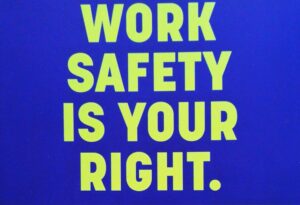
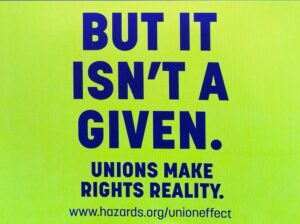
This was even more of a problem when it came to larger companies and their directors. In December 1990, John Rimington, who served as director general of the Health and Safety Executive (HSE) from 1984 to 1995, bemoaned the failure of the courts to jail these bosses for safety crimes. “Courts have difficulty connecting top executives to the blood on the shopfloor,” he said. Read the full article highlighting the failures and challenges from Mick here.
Time for a reset and doing what’s right, the change of government provides an opportunity to push again for negligent directors to be held accountable. Keeping the pressure on our elected representatives is essential, write to your MP and help us to save lives at work.
Making the Invisible, Visible with National Education Union Safety Reps
21 Nov. 2024: GMHC were warmly welcomed at the National Education Union’s Health, Safety & Environment Officers Briefing outside Leicester today. The 3-day event organised by Sarah Lyons (NEU Lead Officer Health, Safety & Environment) and her team saw a couple of hundred safety reps along with union officials share and discuss a vast range of topical information pertinent to the teaching profession. Workshops included, the NEU’s new Ofsted Risk Assessment, NEU’s contributions to the Covid-19 Inquiry, a safer teaching environment – stress, violence, asbestos in schools, activism on health and safety, climate change, equality, supporting SEND and Early Years students as well as mental health and suicide awareness. Embedded throughout the sessions were, sharing resources, understanding official guidance, legislation and sharing good practice. Presentations included the NEU’s Disability Toolkit, Pregnancy at Work, child protection and various climate change topics. There was a strong emphasis throughout the event on the school environment and how to make it safer for learners and staff. The Joint Union Heatwave Protocol along with the union Guide to Good Ventilation in Schools complimented the plenary session from the GMHC on day 2.
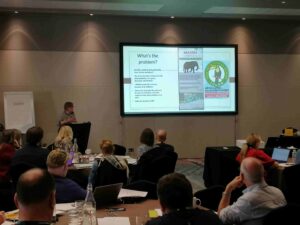
The GMHC presentation looked at what constitutes polluted air and why it matters both inside and outside of the classroom. Following a demonstration of C02 monitoring there was an overview of the law, standards that we should expect and how to enforce by making the invisible, visible. GMHC flagged up the valuable work of the Trade Union Clean Air Network (TUCAN) and relevant articles in the Hazards Magazine. There was an opportunity for reps to share their experiences with feedback including; linking air quality with the curriculum and climate change initiatives. Some reps explored how they could use the technology of air filtration as a teaching aid, comments were made on air quality in relation to asbestos in buildings and the use of MDF in classroom workshops. It was also noted at the session that air filtration competed with other limited school resources, winter weather, class sizes and the challenging economic environment. There was some discussion about air quality and educational attainment, physical and mental health as well as absenteeism due to viruses and other biological contaminants. The plenary session was well received but due to the time constraints GMHC provided links to further reading, respected studies and research on the air quality.
At the end of the session there was time for a photo opportunity where Janet Newsham from GMHC presented, in person an award to NEU reps for a very special campaign. The award borne from a personal and avoidable tragedy recognised the hard work behind the campaign on the Ofsted Risk Assessment.

New Hazards Magazine out now – essential for anyone serious about workplace safety

20 Nov. 2024: The highly acclaimed and influential Hazards Magazine autumn edition is out now. A must, not only for safety reps and activists but all working people and responsible employers. Edition 167 puts a spotlight on; the UK silica crisis, Starmer and the so called ‘red tape’, sexual harassment at work, tips for organising, what’s happening Down Under and much more.
Various hard copy subscriptions available for individuals and organisations or become a Friend of Hazards Magazine by making a donation
Bursting to Go: A new report on workers’ experience of toilet access and facilities
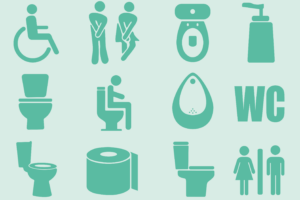 19 Nov. 2024: Today is World Toilet Day highlighting that, access to toilet facilities should be a fundamental right for everyone, regardless of where they live or where they work. Toilets should be of adequate capacity, be of easy access, and suitable for all. Unbelievably that is not always the case for many workers around the UK even today. The evidence can be seen in a new TUC report which is based on a survey of trade union members around the country.
19 Nov. 2024: Today is World Toilet Day highlighting that, access to toilet facilities should be a fundamental right for everyone, regardless of where they live or where they work. Toilets should be of adequate capacity, be of easy access, and suitable for all. Unbelievably that is not always the case for many workers around the UK even today. The evidence can be seen in a new TUC report which is based on a survey of trade union members around the country.
Access to toilets is a fundamental workplace need. When workers lack adequate access, they may delay using the restroom, leading to serious physical health issues over time. It also causes stress and distraction, a serious risk in safety-critical roles where workers must be able to concentrate on the job at hand. Regular restroom breaks are also crucial for staying hydrated and maintaining bodily health, particularly in physically demanding jobs. Teachers, drivers, postal workers, firefighters and many others report urinary tract infections, kidney strain, digestive issues and other health complications as a result of having to ‘hold it in’. There is an additional concern for pregnant, mature, menopausal or disabled workers. Read the full TUC report here and the equally shocking findings from the Train Drivers Union – ASLEF here.
Petition to introduce new air quality and PPE rules for health and social care settings
18th Nov. 2024: Learning from the Covid-19 pandemic it is now time for the UK Government to set new rules on air quality and infection control in health and social care settings. Preparing now will prevent and control airborne infections through new ventilation and filtration requirements. New PPE standards and improved staffing rules combined with robust monitoring and inspections towards compliance will help protect health workers.
Covid and other infectious diseases are spread by airborne aerosols. There are several ways to prevent them by improving air quality and using well-fitting respiratory masks. Some research has found that reinfection can increase the risk of long-term serious organ damage and care workers have amongst the highest prevalence of long Covid. There are many tools to protect people in health and social care including, improving ventilation/air filtration, reintroducing PPE masks and Covid testing, and supporting ill staff to stay home.
Support our carers and communities by sharing and signing the petition .

Hazards at TUC Midlands with Safety Reps and a visit from the HSE
 14th Nov. 2024: GMHC headed down to Birmingham this week to attend the Safety Reps Connect event at the TUC on Summer Lane. Dozens of safety reps gathered from 17 unions to talk about safety and hear presentations on the HSE’s (Health and Safety Executive) ten year strategy – Protecting People and Places. Other talks included, Health and Safety at Work Act – Now and into the Future, Neurodiversity at Work and Workplace Stress. It was also an opportunity to speak to union officials, the GMHC, Janine Booth – author and equality campaigner and Thompsons solicitors. The Hazards stall had a range of resources for reps to take away, the most popular being, climate action, air quality, hazardous materials, the body map – which shows work-related diseases, the Training Safe app and the Hazards Magazine.
14th Nov. 2024: GMHC headed down to Birmingham this week to attend the Safety Reps Connect event at the TUC on Summer Lane. Dozens of safety reps gathered from 17 unions to talk about safety and hear presentations on the HSE’s (Health and Safety Executive) ten year strategy – Protecting People and Places. Other talks included, Health and Safety at Work Act – Now and into the Future, Neurodiversity at Work and Workplace Stress. It was also an opportunity to speak to union officials, the GMHC, Janine Booth – author and equality campaigner and Thompsons solicitors. The Hazards stall had a range of resources for reps to take away, the most popular being, climate action, air quality, hazardous materials, the body map – which shows work-related diseases, the Training Safe app and the Hazards Magazine.
HSE Policy Lead, Kayleigh Roberts presented an overview of the HSE’s 10-year strategic objectives in what was seen as a rare but welcome appearance by an HSE representative. The objectives included, a focus on stress, mental health building trust, safe innovation towards ‘net zero’, continuing a strong safety culture and ensuring HSE is a good place to work. It was acknowledged that lung disease and mental ill health was unacceptably high though it is believed that this could be helped through the Working Minds campaign, a new NEBOSH qualification on stress and better support for disabled workers.
The main focus of the talk was on what is termed, ‘Health Surveillance’ for regulated hazards. In essence this is a series of health checks to identify work-related ill health even after control measures had been put in place. The HSE believes this will help with early detection, fill any gaps in control measures and provide an opportunity for workers to discuss issues. Examples of Regulations that would require health surveillance include; hazardous substances, hand-arm vibration and noise at work. HSE appointed health professionals would cover, substances that are hazardous to health, asbestos, lead and ionising radiation. The HSE expects the programme to include, OHS professionals with an understanding of the workplace, the risks involved and to adhere to additional training where required. The HSE believes there is currently a disconnect between employers, individuals, testing, providers, knowledge, results and timely follow up. Testing in itself if fraught with issues such as quality of tests, standards, lack of interpretive data over a series of tests and the questions over the expertise involved. The HSE sees the surveillance initiative as something that would support early identification of work-related ill health by professionals who know this field as well as complimenting control systems. It wasn’t clear how the initiative would be resourced or enforced and how employers would engage with the proposals considering the funding and enforcement challenges facing the HSE. The decade-long cuts to the HSE has been frequently highlighted by the GMHC, the TUC, Thompsons and today by the Reps Connect organisers. This particular topic was deemed to be ‘…a question for the politicians and department heads’. 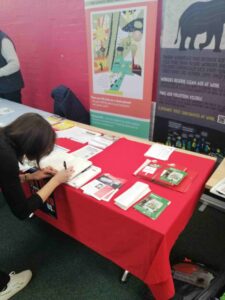

On supporting disabled workers there was a range of encouraging phrases banded about to promote a safer and inclusive approach to ill or disabled workers. Much of it was about removing barriers, workplace adjustments, improving communications, language and understanding in the workplace together with explaining the legal requirements for employers. Click the following link to get a better overview of the HSE’s Best Practice Guide.
Poverty wages and poor conditions for staff at multi million pound GAIL’s bakery chain
Nov 2024: “Despite the cost of that frappuccino and almond croissant, 88% of GAIL’s workers don’t have access to sick pay & often feel stressed at work, 83% say they don’t get paid breaks, & 58% are subject to changing schedules with one week’s notice or less.”

Founded in 1990, with its first bakery opening on Hampstead High St in 2005. There are now 131 stores open. Primarily in London and the South, but now with stores in Birmingham, Manchester and Liverpool. GAIL’s has announced expectations that it might open between 300-500 stores across the country It employs 2742 employees as of December 2023. It’s rapid expansion over the last few years a result of its sale to Bain Capital Credit, massive global asset firm. £135.3 million in turnover, operating profit of £15.9 million in 2023. A higher-end bakery and cafe hiding poor conditions.
Despite the challenges GAIL’s workers are pushing back and like at McDonalds, Starbucks and Amazon, staff have had enough and are organising to get a better deal. Show your support by contacting GAIL’s, leave a review or follow them on social media. Fair pay and conditions is better for worker health, the economy and makes good business sense.

Facebook: https://www.facebook.com/getorganisednow
X: https://twitter.com/organise_now
Instagram: https://www.instagram.com/organise_now/
Still breathing in toxic air? Time for a bit of DIY
12th Nov. 2024: As we spend more time indoors, it’s useful to to consider the air quality at home, work and at school. This time of the year sees spikes in viruses, Covid-19, flu and other airborne contaminants so it’s a useful reminder to look at the free resources available from the Hazards Centre.
Cleaning the Air at Work gives you a heap of links, information of safe levels and even a DIY air filtration system
How to Build a UK DIY Air Cleaning Device
Everything you need to know about what’s in the air and more
Trade Union Clean Air Network – Let’s Talk About Air Pollution
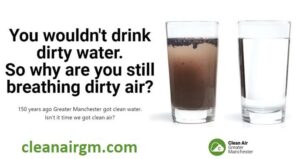
Hazards at UNISON North-West (Eastern) Organisers Away Day
7th Nov. 2024: GMHC attended the UNISON North-West (Eastern) organisers away day at the amazing Working Class Movement Library in Salford. The meeting was well attended with highly experienced organisers and presided over by Regional Manager, Vicky Knight. The organisers discussed the plans, issues, challenges and successes of their service groups, with worker safety never far from the surface. Mental health, leave arrangements, health and safety rep (HSR) training, menopause, customer aggression, Covid-19, building materials were areas that touched on regular organising work.

The GMHC session included an overview of the Hazards Movement, the basics of health and safety organising, the value of trained HSRs and the Hazards Campaign Manifesto – which was distributed prior to the meeting. There was also some time given to a brief look at the potential opportunities for organising around The Employment Rights Bill 2024-25 tabled in Parliament on 10th October 2024. The bill seeks to improve the wider IR picture for workers but there’s some scope to organise around potential safety and equality components of the bill. Job insecurity causes immense stress for workers and their families, shifting the dial on zero hours contracts, fire and rehire, redundancy and unfair dismissal would go a long way in reducing stress and excessive hours. Improved leave conditions including for; menopause, bereavement and parental leave would support a better work-life balance, improve health, family time and the workplace culture. Preventing sexual harassment, including by third parties at work has already moved along in this parliament by expanding areas of the Equality Act. The potential for employers to protect workers from harassment through preventive measures, reporting and improving policies would be a welcome start. Stress, workloads, harassment and mental health are very much areas that fall under workplace health and safety. Unions like UNISON in the NW are already offering training and development to their staff and reps on safer working and equality. The Employment Rights Bill may still have some time to go with consultation, committee stages, amendments, multiple readings in both chambers but after 14 years of eroded rights, this offers some hope for workers.
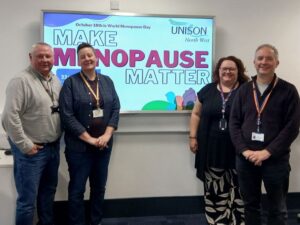
November means Young Workers Month
6th Nov. 2024: There’s no shortage of events and activities during the TUC’s Young Workers Month. All too often younger workers have the lower pay, job insecurity and weaker conditions than the wider workforce. Whether they are new to the workforce, trainees, volunteers, apprentices, interns they can also be at greater risk of workplace injuries. When it comes to safety, young workers have the same protections as all workers – no excuses, no cutting corners and no risk to health. The GMHC has put together some information, events and resources from around the country to support young workers this month and into a safer future.
Young Workers: Resources and Events November 2024
TUC: Young worker events around the country click here
GMHC: Resources for young workers
PCS: Young Members Page
USDAW: A better deal for young workers
LRD: Young Worker Trends
UNISON: Young Workers Charter
Prospect: Young Workers Network
RMT: Young Workers Info and Events
All-Party Parliamentary recognition of HASWA at 50
4th Nov. 2024: GM Hazards attended the All-Party Parliamentary Group on Occupational Safety and Health. The Parliamentary reception adjacent to the House of Commons marked the 50th anniversary of the Health and Safety at Work  Act 1974. Sponsored by Leigh Day solicitors and the TUC the event had guest speakers including Sir Stephen Timms Minister of State for Social Security and Disability, Ian Lavery MP amongst many other speakers and guests from unions, the House of Lords, safety and asbestos groups, medical professionals, charities and legal representatives. The speakers acknowledged the need for a Health and Safety at Work Act and the significance it has had to workers lives over the last 50 years. Shelly Asquith Head of Safety at the TUC noted the number of fatal injuries at work had fallen by 80% since 1974 but 138 this year is still way too high. The final speaker of the evening was an inspiring speech from Harminder Bains, joint head of the asbestos and mesothelioma department at Leigh Day. Harminder reminded the assembled crowd that 5,000 people a year are still dying from asbestos-related cancers and that real action, funding and research was desperately needed – more so than words and acknowledgements. With personal experience of mesothelioma in her family she stressed the urgent need families around the country had especially in managing asbestos-related diseases with little or no support. Comparing the significant resources going into the lower numbers involved in road traffic accidents, asbestos-related diseases had a long way to catch up. Better prevention and funding, particularly through education, research and the Health and Safety Executive (HSE) reversing years of decline is badly needed in the UK. Harminder struck a chord with attendees, most who had seen or supported workers and colleagues affected by toxic dust over many years. The remainder of the event was an opportunity to network and to discuss the opportunities that may arise from the change in government this year and their commitment to re-calibrate the industrial relations landscape in the UK.
Act 1974. Sponsored by Leigh Day solicitors and the TUC the event had guest speakers including Sir Stephen Timms Minister of State for Social Security and Disability, Ian Lavery MP amongst many other speakers and guests from unions, the House of Lords, safety and asbestos groups, medical professionals, charities and legal representatives. The speakers acknowledged the need for a Health and Safety at Work Act and the significance it has had to workers lives over the last 50 years. Shelly Asquith Head of Safety at the TUC noted the number of fatal injuries at work had fallen by 80% since 1974 but 138 this year is still way too high. The final speaker of the evening was an inspiring speech from Harminder Bains, joint head of the asbestos and mesothelioma department at Leigh Day. Harminder reminded the assembled crowd that 5,000 people a year are still dying from asbestos-related cancers and that real action, funding and research was desperately needed – more so than words and acknowledgements. With personal experience of mesothelioma in her family she stressed the urgent need families around the country had especially in managing asbestos-related diseases with little or no support. Comparing the significant resources going into the lower numbers involved in road traffic accidents, asbestos-related diseases had a long way to catch up. Better prevention and funding, particularly through education, research and the Health and Safety Executive (HSE) reversing years of decline is badly needed in the UK. Harminder struck a chord with attendees, most who had seen or supported workers and colleagues affected by toxic dust over many years. The remainder of the event was an opportunity to network and to discuss the opportunities that may arise from the change in government this year and their commitment to re-calibrate the industrial relations landscape in the UK.
The Hazards Campaign has committed to effective and long-lasting changes to worker safety in their Manifesto. Adopting the approach outlined in the Manifesto would see a sharp decline in worker illnesses, injury and fatalities. It would prioritise strong accountability and enforcement through an effective and resourced regulator. Restoring the HSE’s Mission Statement and Priorities. To read and share the Hazards Manifesto click here.
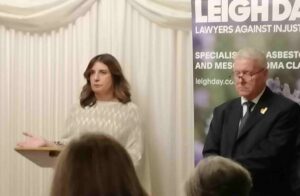

Unions publish new report and recommendations on the health impact of night-working
1st Nov 2024: If you have ever worked long shifts or night-shifts you’ll know the impact it has on your body clock. Night-time workers are often forgotten with a strong focus on the daytime economy. Night-work can impact your mental and physical health significantly from diet, less exercise, isolation, lack of sunlight, long hours, lack of support, social life and relationship difficulties. The Greater Manchester Hazards Centre supports the findings from unions to improve the health and safety of night-time workers. The new report, Health and Safety Impacts of Night Working was recently published by the TUC and five major UK unions. The full report can be found here but in its conclusion it comes up with 8 recommendations to help protect night-time and shift workers. Click on the document below for the 8 recommendations.
UCL hosts Global Launch of 2024 Lancet Countdown on Health and Climate Change
30 Oct. 2024: GMHC attended the Global Launch of the 2024 report of the Lancet Countdown on Health and Climate Change. This virtual launch of the 2024 Report was funded by the Wellcome Trust and developed in close collaboration with the World Health Organization, the report represents the work of 122 leading experts from 57 academic institutions and UN agencies globally. Published ahead of the 29th UN Conference of the Parties (COP) in Baku, it provides the most up-to-date assessment of the links between health and climate change.
Moderated by BBC journalist Dr Smitha Mundasad with keynote speeches from leading voices on climate and health including Dr Tedros Adhanom Ghebreyesus, Director-General of the World Health Organization; Rt Hon Helen Clark, former Prime Minister of New Zealand, Patron of the Helen Clark Foundation, and member of The Elders; Dr Richard Horton, Editor-in-Chief of The Lancet. The launch was followed by a panel discussion with leading academics and representatives in climate change and human health.
GMHC noted from the report that workers around the world are increasingly being affected by the impact of climate change. Food quality and water supplies, extreme and frequent adverse weather events, heat stress, disease, drought and pollution to name a few. Although the report shows UK workers are less affected than more southern and eastern countries, through global supply chains the UK is heavily reliant on imported food and goods from countries that are badly affected. Outdoor workers in particular are at great risk especially in mining, forestry and agriculture. These industries not only have a huge environmental impact but the workers, who are often migrant workers are mentally and physically affected by these more frequent extreme conditions. The highly exposed industries supply us with rare earth metals for our tech and our demand for out-of-season and all-year-round food supplies. GMHC has been campaigning on heat stress, clean air, safer working practices, stronger regulations, enforcement and corporate accountability for some time now. GMHC welcomes new evidence that will lead to better policy making and preventative safety measures at a local and international level.
For the extract relating to workers, ‘change in labour supply‘ and the report conclusion, courtesy of The Lancet click here
For the full report, courtesy of The Lancet click here

Long-awaited changes to the law on sexual harassment at work
26 Oct 2024: Under UK equality legislation new protections from sexual harassment came into force on 26/10/24. Employers now have a legal duty to take reasonable steps to prevent sexual harassment and create a safe working environment. See the Equality and Human Rights Commission (EHRC) preventative guidance for employers.

Hazards Connects with the Salford Resource Centre
18 Oct. 2024: The Salford Unemployed and Community Resource Centre (SUCRC) held a community open event on 18th October 2024 as a way to engage local residents and workers in the area. GMHC went along with some resources for workers and chatted to employment law advisors, John Howard and Abdul-karim Al-Malahi about their work as well as the campaigning work of the GMHC.
The SUCRC was established in 1980, since then they have continually campaigned, supported, advised and represented unemployed and employed people across the region. The SUCRC offers a range of support services for their community, including for older people, people with disabilities, unemployed people and workers who are facing difficulties.
Despite immense funding challenges they have a free employment law service which provides information and guidance for locals who are either in or out of work. Some of the initial advice on employment matters include; unfair or constructive dismissal, unlawful deductions, redundancy discrimination, breach of contract, disciplinary issues and grievances.
For guidance on employment matters contact the centre for initial advice on 0161 789 999 or email secretary_stuc@hotmail.co.uk Workers can also contact their trade union, to find out which union is most relevant to your work – see the Trade Union Congress (TUC) guide for details. For guidance on work safety matters speak to your workplace safety rep and see the GMHC website.
Modern Slavery and Exploitation in Greater Manchester
18 Oct 2024: GMHC attended the Tackling Modern Slavery and Exploitation in Greater Manchester: An introduction with local experts event on the 18th of October 2024. The event was part of the Anti-Slavery Week of events and was organised by the Greater Manchester Police (GMP) and Greater Manchester Deputy Mayor’s office.
The focus of the event was to raise awareness about modern slavery and ask businesses, organisations and individuals in Manchester to recognise signs of exploitation. The panel discussion also highlighted what the Greater Manchester Combined Authority’s approach is towards addressing this complex organised crime. Read more here.
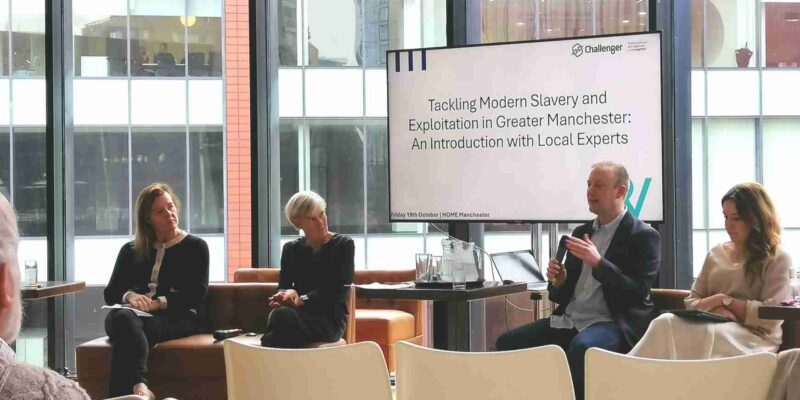
Hazards at the TUC Unionreps Connect event
15th October 2024: The Unionreps Connect event took place at the TUC in London on the 15th October. Hundreds of union reps from multiple unions descended on Congress House for a full day of employment related talks, workshops, stalls and networking.
The Greater Manchester Hazards Centre (GMHC) set up shop at the event where the two co-ordinators (Janet and William) spoke to and advised dozens of reps including safety reps and workplace activists on a variety of safety issues. The topics raised by reps were consistent with a number of areas in the Hazards Manifesto including; air quality, better recognition and understanding of mental health issues, long Covid, resources and research to support reps on safety matters, enforceable workplace safety systems, campaigns for a more active and independent regulatory body, the value of the annual Hazards conferences, toxic substances, the Hazards Magazine, heat stress and better accountability over building maintenance.
At the GMHC stall, numerous Hazards guides and the CO₂ monitors stimulated conversations about how to organise workers on safety matters. Reps were keen to know more about strategies to obtain genuine consultation with management over workplace changes and safety issues as well as evidence-based approaches to enforcement. The working environment, inadequate accident/ incident reporting (including mental health), workloads, stress and air quality in the workplace were popular discussion topics. There was demonstrations and guidance from GMHC on measuring CO₂ as a proxy for air quality, resources from the Trade Union Clean Air Network (TUCAN) and even a guide on how to build your own air filtration system. Many reps were concerned that their workplaces were not getting adequate natural or mechanical filtration potentially impacting health and general well-being. The Act Now on Mental Health leaflets, Hazards Magazine and TUCAN leaflets/guides were pretty much all snapped up as reps added them to their conference bags.

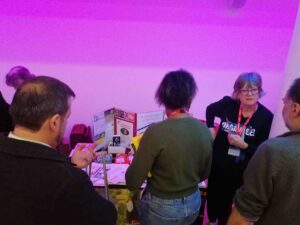
There were speeches from TUC General Secretary, Paul Nowak and Justin Madders MP and Parliamentary Under Secretary of State (Minister for Employment Rights, Competition and Markets).
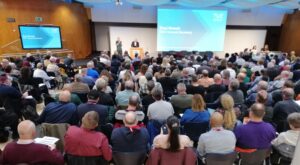

With a choice of eight workshops reps appeared energised by the insights, experiences and information shared out. The Supporting Neurodivergent Members workshop provided a good understanding of what neurodiversity means and how it affects individuals. It looked at what reasonable adjustments could be made in the workplace along with follow up links to useful resources. The Gender and Health and Safety workshop discussed the often overlooked or ignored risks to women’s health and safety, from badly fitting PPE to mental health issues affecting both men and women including menopause and andropause. The Social Media Challenges in the Workplace workshop highlighted the obligations many workers may unwittingly have both in and out of the workplace. This included being unaware of company policies, grey areas, views expressed, pictures and sharing posted content. The rise in misinformation and right-wing propganda on social media was a common concern at the workshop. The Big Employment Law workshop was also well attended and discussed The Employment Rights Bill with looking at ways how to organise and use this to improve rights and conditions.
Finally, earlier in the day Emma Game from Thompson Solicitors provided a valuable guide to amendments to employment legislation based case law and arbitration or court rulings. Towards the end of the event reps had a chance to share how they could take lessons from the talks and the stalls back to the workplace for organising and supporting members along with engaging potential members.
World Mental Health Day 10 October 2024
World Mental Health Day 10 October 2024: Unhealthy conditions including exclusion, discrimination, and exposure to risks like harassment, high workloads and poor working conditions can pose significant risks to workers. This can adversely affect mental health, overall quality of life and consequently participation or productivity at work.
Today is a good reminder that workers can organise with their trade union and ensure employers are meeting their responsibilities. There are three main areas where trade unions should take direct action:
1. A strategy for preventing work related stress and mental ill health
2. Supporting individuals at work with mental ill health
3. Providing a positive mental health work environment
For those not yet in a union, you can still ‘Act Now’ by sharing and downloading our free Act Now on Mental Health leaflet
Hazards and the Troublemakers
5th October 2024: The Hazards Centre had two stalls at this years annual Troublemakers At Work Conference held in Manchester. The event was attended by a range of voluntary and community organisations, trade unions, campaign groups and political figures. Of the visitors to the Hazards stall many were interested in how to organise and enforce their rights to protect workers and volunteers. Workloads and stress came up regularly but there was also interest in how climate change and the diminishing role of the HSE were affecting safer working. The Hazards Magazine was a popular resource as was the easy-to-use guide from the Hazards Centre on organising for safer workplaces.
The main events and workshops included; Fighting Back Under Labour, Precarious and Migrant Workers Organising, Confronting Far Right Ideas in the Workplace and Anti-Union Laws, Lessons from the Strike Waves amongst many others. To see more on this event held on 5th October 2024 and the campaign work of Troublemakers At Work click here.
Calling Safety Reps – How does your workplace record accidents?
October 2024: The GMHC is keen to know if and how you record accidents/ incidents at your workplace. Our short survey is anonymous and will help to inform us about any areas of accident reporting that we should campaign on. Use the link below to start the survey. If you are interested in becoming a health and safety rep (HSR) contact your union. To find out which union covers your workplace please click here.
If you are in the North West of England you can leave your email address if you’d like to join our North West Safety Reps Network. Thank You.
GMHC Support Midwives Campaign
September 2024: The GMHC took its worker-safety messaging to the Royal College of Midwives (RCM) National Conference in York on 17th September 2024. Throughout the day GMHC showed its support for midwives by talking about preventative measures such as managing workloads, ventilation, the value in developing heath and safety reps and how the changing climate affects workers.
With an effective grass-roots campaign by workers, it was not surprising to see the Hazards Campaign recognise their work on Entonox through an award at the Hazards Conference in September 2024. Not only has the Entonox campaign given midwives a say in protecting themselves and others as they go about their duties but it has helped to raise morale and confidence in addressing safety concerns. Ordinary workers having a say and being engaged in meaningful consultation not just protects people but it is good practice and recognised in law. The GMHC wishes RCM members further success with their campaigns and welcomes the growth in new and active health and safety reps across the union.

